Frequent persons on Us's street signs
countries
230 names / 29429 streets
George Washington
 1399
George Washington was an American Founding Father, military officer, and politician who served as the first president of the United States from 1789 to 1797. Appointed by the Second Continental...
1399
George Washington was an American Founding Father, military officer, and politician who served as the first president of the United States from 1789 to 1797. Appointed by the Second Continental...
Abraham Lincoln
 1037
Abraham Lincoln was an American lawyer, politician, and statesman, who served as the 16th president of the United States, from 1861 until his assassination in 1865. Lincoln led the United States...
1037
Abraham Lincoln was an American lawyer, politician, and statesman, who served as the 16th president of the United States, from 1861 until his assassination in 1865. Lincoln led the United States...
Thomas Jefferson
 803
Thomas Jefferson was an American statesman, diplomat, lawyer, architect, philosopher, and Founding Father who served as the third president of the United States from 1801 to 1809. He was the primary...
803
Thomas Jefferson was an American statesman, diplomat, lawyer, architect, philosopher, and Founding Father who served as the third president of the United States from 1801 to 1809. He was the primary...
Andrew Jackson
 718
Andrew Jackson was an American lawyer, planter, general, and statesman who served as the seventh president of the United States from 1829 to 1837. Before his presidency, he gained fame as a general...
718
Andrew Jackson was an American lawyer, planter, general, and statesman who served as the seventh president of the United States from 1829 to 1837. Before his presidency, he gained fame as a general...
Benjamin Franklin
 716
Benjamin Franklin was an American polymath, a leading writer, scientist, inventor, statesman, diplomat, printer, publisher, and political philosopher. Among the most influential intellectuals of his...
716
Benjamin Franklin was an American polymath, a leading writer, scientist, inventor, statesman, diplomat, printer, publisher, and political philosopher. Among the most influential intellectuals of his...
Woodrow Wilson
 709
Thomas Woodrow Wilson was an American politician and academic who served as the 28th president of the United States from 1913 to 1921. A member of the Democratic Party, Wilson served as the president...
709
Thomas Woodrow Wilson was an American politician and academic who served as the 28th president of the United States from 1913 to 1921. A member of the Democratic Party, Wilson served as the president...
James Madison
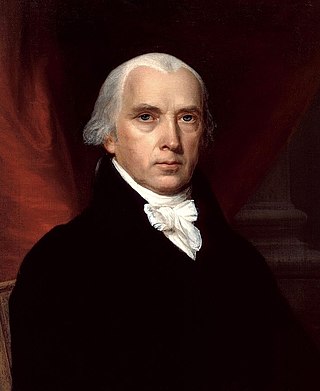 659
James Madison was an American statesman, diplomat, and Founding Father who served as the fourth president of the United States from 1809 to 1817. Madison was popularly acclaimed the "Father of the...
659
James Madison was an American statesman, diplomat, and Founding Father who served as the fourth president of the United States from 1809 to 1817. Madison was popularly acclaimed the "Father of the...
Alexander Hamilton
 639
Alexander Hamilton was an American military officer, statesman, and Founding Father who served as the first secretary of the treasury from 1789 to 1795 during George Washington's presidency.
639
Alexander Hamilton was an American military officer, statesman, and Founding Father who served as the first secretary of the treasury from 1789 to 1795 during George Washington's presidency.
John Adams
 636
John Adams was an American statesman, attorney, diplomat, writer, and Founding Father who served as the second president of the United States from 1797 to 1801. Before his presidency, he was a leader...
636
John Adams was an American statesman, attorney, diplomat, writer, and Founding Father who served as the second president of the United States from 1797 to 1801. Before his presidency, he was a leader...
William Clark
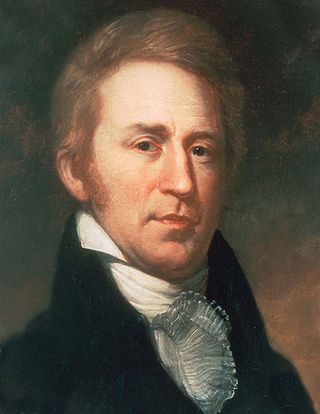 613
William Clark was an American explorer, soldier, Indian agent, and territorial governor. A native of Virginia, he grew up in pre-statehood Kentucky before later settling in what became the state of...
613
William Clark was an American explorer, soldier, Indian agent, and territorial governor. A native of Virginia, he grew up in pre-statehood Kentucky before later settling in what became the state of...
Martin Van Buren
 582
Martin Van Buren was an American lawyer, diplomat, and statesman who served as the eighth president of the United States from 1837 to 1841. A primary founder of the Democratic Party, he served as New...
582
Martin Van Buren was an American lawyer, diplomat, and statesman who served as the eighth president of the United States from 1837 to 1841. A primary founder of the Democratic Party, he served as New...
Zachary Taylor
 572
Zachary Taylor was an American military leader who served as the 12th president of the United States from 1849 until his death in 1850. Taylor was a career officer in the United States Army, rising...
572
Zachary Taylor was an American military leader who served as the 12th president of the United States from 1849 until his death in 1850. Taylor was a career officer in the United States Army, rising...
Jefferson Davis
 547
Jefferson F. Davis was an American politician who served as the first and only president of the Confederate States from 1861 to 1865. He represented Mississippi in the United States Senate and the...
547
Jefferson F. Davis was an American politician who served as the first and only president of the Confederate States from 1861 to 1865. He represented Mississippi in the United States Senate and the...
Ulysses S. Grant
 541
Ulysses S. Grant was an American military officer, politician, and the 18th president of the United States, who served from 1869 to 1877. As commanding general, Grant led the Union Army to victory in...
541
Ulysses S. Grant was an American military officer, politician, and the 18th president of the United States, who served from 1869 to 1877. As commanding general, Grant led the Union Army to victory in...
Lyndon B. Johnson
 540
Lyndon Baines Johnson, often referred to by his initials LBJ, was an American politician who served as the 36th president of the United States from 1963 to 1969. He became president after the...
540
Lyndon Baines Johnson, often referred to by his initials LBJ, was an American politician who served as the 36th president of the United States from 1963 to 1969. He became president after the...
William Henry Harrison
 519
William Henry Harrison was an American military officer and politician who served as the ninth president of the United States. Harrison died just 31 days after his inauguration as president in 1841,...
519
William Henry Harrison was an American military officer and politician who served as the ninth president of the United States. Harrison died just 31 days after his inauguration as president in 1841,...
Warren G. Harding
 517
Warren Gamaliel Harding was an American politician who served as the 29th president of the United States from 1921 until his death in 1923. A member of the Republican Party, he was one of the most...
517
Warren Gamaliel Harding was an American politician who served as the 29th president of the United States from 1921 until his death in 1923. A member of the Republican Party, he was one of the most...
James Monroe
 494
James Monroe was an American statesman, lawyer, diplomat, and Founding Father who served as the fifth president of the United States from 1817 to 1825, a member of the Democratic-Republican Party. He...
494
James Monroe was an American statesman, lawyer, diplomat, and Founding Father who served as the fifth president of the United States from 1817 to 1825, a member of the Democratic-Republican Party. He...
Franklin D. Roosevelt
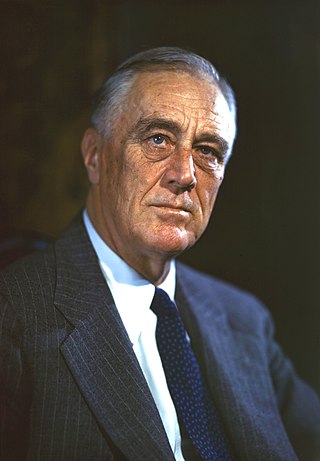 437
Franklin Delano Roosevelt, commonly known by his initials FDR, was an American statesman and politician who served as the 32nd president of the United States from 1933 until his death in 1945. He was...
437
Franklin Delano Roosevelt, commonly known by his initials FDR, was an American statesman and politician who served as the 32nd president of the United States from 1933 until his death in 1945. He was...
Francis Lewis
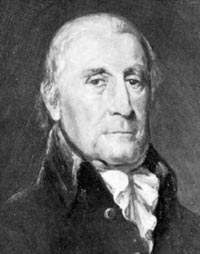 435
Francis Lewis was an American merchant and a Founding Father of the United States. He was a signatory of the United States Declaration of Independence and Articles of Confederation as a...
435
Francis Lewis was an American merchant and a Founding Father of the United States. He was a signatory of the United States Declaration of Independence and Articles of Confederation as a...
Bill Clinton
 429
William Jefferson Clinton is an American politician who served as the 42nd president of the United States from 1993 to 2001. A member of the Democratic Party, he previously served as Governor of...
429
William Jefferson Clinton is an American politician who served as the 42nd president of the United States from 1993 to 2001. A member of the Democratic Party, he previously served as Governor of...
Grover Cleveland
 395
Stephen Grover Cleveland was an American politician who served as the 22nd and 24th president of the United States from 1885 to 1889 and from 1893 to 1897. He is the only president in U.S. history to...
395
Stephen Grover Cleveland was an American politician who served as the 22nd and 24th president of the United States from 1885 to 1889 and from 1893 to 1897. He is the only president in U.S. history to...
Winfield Scott
 395
Winfield Scott was an American military commander and political candidate. He served as Commanding General of the United States Army from 1841 to 1861, having taken part in the War of 1812, the...
395
Winfield Scott was an American military commander and political candidate. He served as Commanding General of the United States Army from 1841 to 1861, having taken part in the War of 1812, the...
Stephen A. Douglas
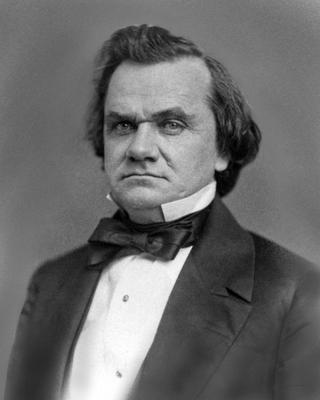 383
Stephen Arnold Douglas was an American politician and lawyer from Illinois. A senator, he was one of two nominees of the badly split Democratic Party for president in the 1860 presidential election,...
383
Stephen Arnold Douglas was an American politician and lawyer from Illinois. A senator, he was one of two nominees of the badly split Democratic Party for president in the 1860 presidential election,...
Richard Russell Jr.
 381
Richard Brevard Russell Jr. was an American politician. A member of the Democratic Party, he served as the 66th Governor of Georgia from 1931 to 1933 before serving in the United States Senate for...
381
Richard Brevard Russell Jr. was an American politician. A member of the Democratic Party, he served as the 66th Governor of Georgia from 1931 to 1933 before serving in the United States Senate for...
Nathaniel Hawthorne
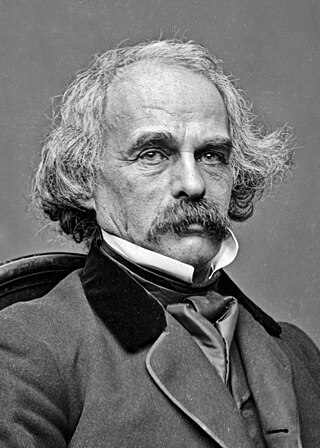 367
Nathaniel Hawthorne was an American novelist and short story writer. His works often focus on history, morality, and religion.
367
Nathaniel Hawthorne was an American novelist and short story writer. His works often focus on history, morality, and religion.
William Tecumseh Sherman
 363
William Tecumseh Sherman was an American soldier, businessman, educator, and author. He served as a general in the Union Army during the American Civil War (1861–1865), achieving recognition for his...
363
William Tecumseh Sherman was an American soldier, businessman, educator, and author. He served as a general in the Union Army during the American Civil War (1861–1865), achieving recognition for his...
Chester A. Arthur
 357
Chester Alan Arthur was an American politician who served as the 21st president of the United States from 1881 to 1885. He was a Republican lawyer from New York who briefly served as the 20th vice...
357
Chester Alan Arthur was an American politician who served as the 21st president of the United States from 1881 to 1885. He was a Republican lawyer from New York who briefly served as the 20th vice...
James A. Garfield
 338
James Abram Garfield was the 20th president of the United States, serving from March 1881 until his death the following September after being shot by an assassin in July. A preacher, lawyer, and...
338
James Abram Garfield was the 20th president of the United States, serving from March 1881 until his death the following September after being shot by an assassin in July. A preacher, lawyer, and...
Matthew C. Perry
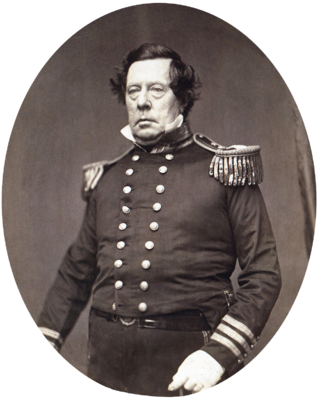 317
Matthew Calbraith Perry was an American naval officer who commanded ships in several wars, including the War of 1812 and the Mexican–American War. He played a leading role in the Perry Expedition...
317
Matthew Calbraith Perry was an American naval officer who commanded ships in several wars, including the War of 1812 and the Mexican–American War. He played a leading role in the Perry Expedition...
Henry Hudson
 305
Henry Hudson was an English sea explorer and navigator during the early 17th century, best known for his explorations of present-day Canada and parts of the Northeastern United States.
305
Henry Hudson was an English sea explorer and navigator during the early 17th century, best known for his explorations of present-day Canada and parts of the Northeastern United States.
Noah Webster
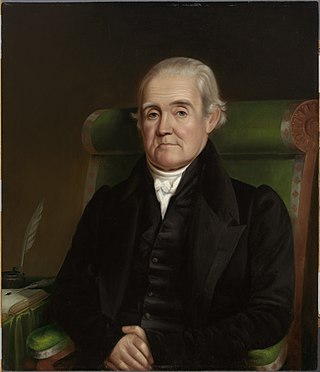 296
Noah Webster Jr. was an American lexicographer, textbook pioneer, English-language spelling reformer, political writer, editor, and author. He has been called the "Father of American Scholarship and...
296
Noah Webster Jr. was an American lexicographer, textbook pioneer, English-language spelling reformer, political writer, editor, and author. He has been called the "Father of American Scholarship and...
Richard Montgomery
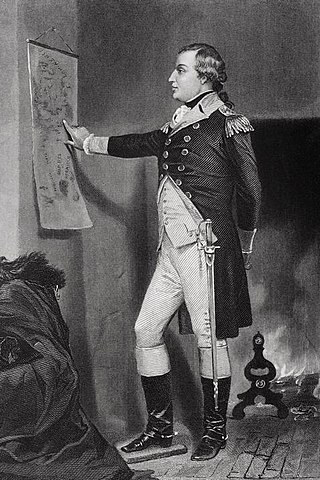 284
Richard Montgomery was an Irish-born American military officer who first served in the British Army. He later became a major general in the Continental Army during the American Revolutionary War, and...
284
Richard Montgomery was an Irish-born American military officer who first served in the British Army. He later became a major general in the Continental Army during the American Revolutionary War, and...
Jackie Robinson
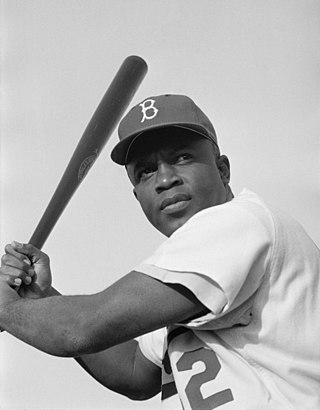 281
Jack Roosevelt Robinson was an American professional baseball player who became the first African American to play in Major League Baseball (MLB) in the modern era. Robinson broke the color line when...
281
Jack Roosevelt Robinson was an American professional baseball player who became the first African American to play in Major League Baseball (MLB) in the modern era. Robinson broke the color line when...
Andrew Johnson
 279
Andrew Johnson was an American politician who served as the 17th president of the United States from 1865 to 1869. He assumed the presidency following the assassination of Abraham Lincoln, as he was...
279
Andrew Johnson was an American politician who served as the 17th president of the United States from 1865 to 1869. He assumed the presidency following the assassination of Abraham Lincoln, as he was...
Alexander Graham Bell
 267
Alexander Graham Bell was a Scottish-born Canadian-American inventor, scientist and engineer who is credited with patenting the first practical telephone. He also co-founded the American Telephone...
267
Alexander Graham Bell was a Scottish-born Canadian-American inventor, scientist and engineer who is credited with patenting the first practical telephone. He also co-founded the American Telephone...
Seneca the Younger
 262
Lucius Annaeus Seneca the Younger, usually known mononymously as Seneca, was a Stoic philosopher of Ancient Rome, a statesman, dramatist, and in one work, satirist, from the post-Augustan age of...
262
Lucius Annaeus Seneca the Younger, usually known mononymously as Seneca, was a Stoic philosopher of Ancient Rome, a statesman, dramatist, and in one work, satirist, from the post-Augustan age of...
Philip Sheridan
 261
Philip Henry Sheridan was a career United States Army officer and a Union general in the American Civil War. His career was noted for his rapid rise to major general and his close association with...
261
Philip Henry Sheridan was a career United States Army officer and a Union general in the American Civil War. His career was noted for his rapid rise to major general and his close association with...
John F. Kennedy
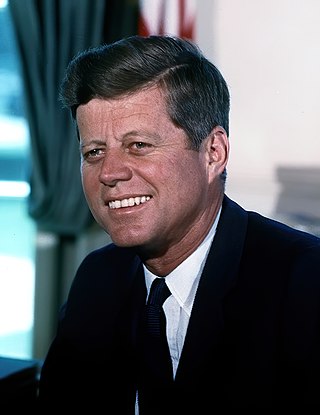 258
John Fitzgerald Kennedy, often referred to as JFK, was an American politician who served as the 35th president of the United States from 1961 until his assassination in 1963. He was the youngest...
258
John Fitzgerald Kennedy, often referred to as JFK, was an American politician who served as the 35th president of the United States from 1961 until his assassination in 1963. He was the youngest...
John Tyler
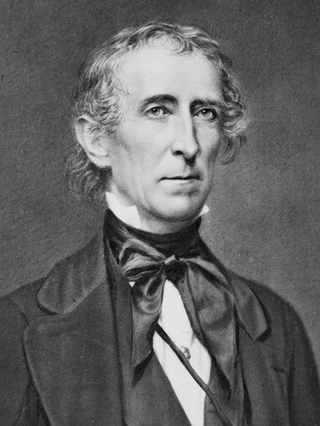 257
John Tyler was an American politician who served as the tenth president of the United States from 1841 to 1845, after briefly holding office as the tenth vice president in 1841. He was elected vice...
257
John Tyler was an American politician who served as the tenth president of the United States from 1841 to 1845, after briefly holding office as the tenth vice president in 1841. He was elected vice...
Oliver Evans
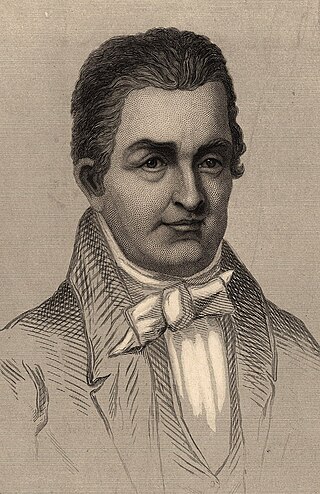 255
Oliver Evans was an American inventor, engineer, and businessman born in rural Delaware and later rooted commercially in Philadelphia. He was one of the first Americans to build steam engines and an...
255
Oliver Evans was an American inventor, engineer, and businessman born in rural Delaware and later rooted commercially in Philadelphia. He was one of the first Americans to build steam engines and an...
Franklin Pierce
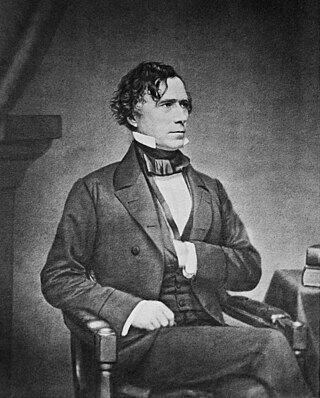 246
Franklin Pierce was an American politician who served as the 14th president of the United States from 1853 to 1857. A northern Democrat who believed that the abolitionist movement was a fundamental...
246
Franklin Pierce was an American politician who served as the 14th president of the United States from 1853 to 1857. A northern Democrat who believed that the abolitionist movement was a fundamental...
John Harvard (clergyman)
 245
John Harvard (1607–1638) was an English dissenting minister in colonial New England whose
deathbed
bequest to the
"schoale or colledge"
founded two years earlier by the Massachusetts Bay Colony was...
245
John Harvard (1607–1638) was an English dissenting minister in colonial New England whose
deathbed
bequest to the
"schoale or colledge"
founded two years earlier by the Massachusetts Bay Colony was...
Ralph Waldo Emerson
 238
Ralph Waldo Emerson, who went by his middle name Waldo, was an American essayist, lecturer, philosopher, abolitionist, and poet who led the Transcendentalist movement of the mid-19th century. He was...
238
Ralph Waldo Emerson, who went by his middle name Waldo, was an American essayist, lecturer, philosopher, abolitionist, and poet who led the Transcendentalist movement of the mid-19th century. He was...
Jimmy Carter
 236
James Earl Carter Jr. is an American politician and humanitarian who served as the 39th president of the United States from 1977 to 1981. A member of the Democratic Party, Carter was the 76th...
236
James Earl Carter Jr. is an American politician and humanitarian who served as the 39th president of the United States from 1977 to 1981. A member of the Democratic Party, Carter was the 76th...
Robert Fulton
 235
Robert Fulton was an American engineer and inventor who is widely credited with developing the world's first commercially successful steamboat, the North River Steamboat. In 1807, that steamboat...
235
Robert Fulton was an American engineer and inventor who is widely credited with developing the world's first commercially successful steamboat, the North River Steamboat. In 1807, that steamboat...
Wright brothers
 229
The Wright brothers, Orville Wright and Wilbur Wright, were American aviation pioneers generally credited with inventing, building, and flying the world's first successful airplane. They made the...
229
The Wright brothers, Orville Wright and Wilbur Wright, were American aviation pioneers generally credited with inventing, building, and flying the world's first successful airplane. They made the...
Eli Whitney
 223
Eli Whitney Jr. was an American inventor, widely known for inventing the cotton gin in 1793, one of the key inventions of the Industrial Revolution that shaped the economy of the Antebellum South.
223
Eli Whitney Jr. was an American inventor, widely known for inventing the cotton gin in 1793, one of the key inventions of the Industrial Revolution that shaped the economy of the Antebellum South.
Christopher Columbus
 218
Christopher Columbus was an Italian explorer and navigator from the Republic of Genoa who completed four Spanish-based voyages across the Atlantic Ocean sponsored by the Catholic Monarchs, opening...
218
Christopher Columbus was an Italian explorer and navigator from the Republic of Genoa who completed four Spanish-based voyages across the Atlantic Ocean sponsored by the Catholic Monarchs, opening...
William McKinley
 214
William McKinley was an American politician who served as the 25th president of the United States from 1897 until his assassination in 1901. A member of the Republican Party, he led a realignment...
214
William McKinley was an American politician who served as the 25th president of the United States from 1897 until his assassination in 1901. A member of the Republican Party, he led a realignment...
Rutherford B. Hayes
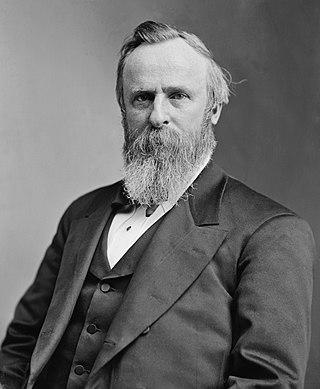 213
Rutherford Birchard Hayes was an American military officer and politician who served as the 19th president of the United States from 1877 to 1881.
213
Rutherford Birchard Hayes was an American military officer and politician who served as the 19th president of the United States from 1877 to 1881.
Martin Luther King Jr.
 208
Martin Luther King Jr. was an American Christian minister, activist, and political philosopher who was one of the most prominent leaders in the civil rights movement from 1955 until his assassination...
208
Martin Luther King Jr. was an American Christian minister, activist, and political philosopher who was one of the most prominent leaders in the civil rights movement from 1955 until his assassination...
Euclid
 204
Euclid was an ancient Greek mathematician active as a geometer and logician. Considered the "father of geometry", he is chiefly known for the Elements treatise, which established the foundations of...
204
Euclid was an ancient Greek mathematician active as a geometer and logician. Considered the "father of geometry", he is chiefly known for the Elements treatise, which established the foundations of...
Gerald Ford
 203
Gerald Rudolph Ford Jr. was an American politician who served as the 38th president of the United States from 1974 to 1977. He previously served as the leader of the Republican Party in the U.S....
203
Gerald Rudolph Ford Jr. was an American politician who served as the 38th president of the United States from 1974 to 1977. He previously served as the leader of the Republican Party in the U.S....
Frederick Douglass
 200
Frederick Douglass was an American social reformer, abolitionist, orator, writer, and statesman. He became the most important leader of the movement for African-American civil rights in the 19th...
200
Frederick Douglass was an American social reformer, abolitionist, orator, writer, and statesman. He became the most important leader of the movement for African-American civil rights in the 19th...
Isaac Newton
 191
Sir Isaac Newton was an English polymath active as a mathematician, physicist, astronomer, alchemist, theologian, and author who was described in his time as a natural philosopher. He was a key...
191
Sir Isaac Newton was an English polymath active as a mathematician, physicist, astronomer, alchemist, theologian, and author who was described in his time as a natural philosopher. He was a key...
Calvin Coolidge
 168
Calvin Coolidge was an American attorney and politician who served as the 30th president of the United States from 1923 to 1929.
168
Calvin Coolidge was an American attorney and politician who served as the 30th president of the United States from 1923 to 1929.
John Milton
 163
John Milton was an English poet, polemicist, and civil servant. His 1667 epic poem Paradise Lost, written in blank verse and including twelve books, was written in a time of immense religious flux...
163
John Milton was an English poet, polemicist, and civil servant. His 1667 epic poem Paradise Lost, written in blank verse and including twelve books, was written in a time of immense religious flux...
William Howard Taft
 162
William Howard Taft was the 27th president of the United States, serving from 1909 to 1913, and the tenth chief justice of the United States, serving from 1921 to 1930, the only person to have held...
162
William Howard Taft was the 27th president of the United States, serving from 1909 to 1913, and the tenth chief justice of the United States, serving from 1921 to 1930, the only person to have held...
Winston Churchill
 155
Sir Winston Leonard Spencer Churchill was a British statesman, soldier, and writer who twice served as Prime Minister of the United Kingdom, from 1940 to 1945 during the Second World War, and again...
155
Sir Winston Leonard Spencer Churchill was a British statesman, soldier, and writer who twice served as Prime Minister of the United Kingdom, from 1940 to 1945 during the Second World War, and again...
James Clerk Maxwell
 150
James Clerk Maxwell was a Scottish physicist with broad interests who was responsible for the classical theory of electromagnetic radiation, which was the first theory to describe electricity,...
150
James Clerk Maxwell was a Scottish physicist with broad interests who was responsible for the classical theory of electromagnetic radiation, which was the first theory to describe electricity,...
Langston Hughes
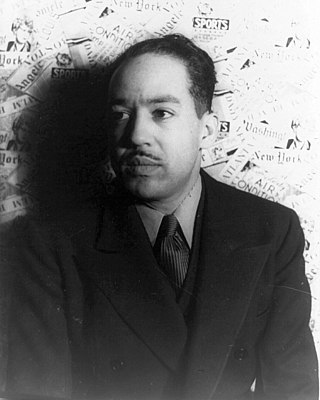 147
James Mercer Langston Hughes was an American poet, social activist, novelist, playwright, and columnist from Joplin, Missouri. One of the earliest innovators of the literary art form called jazz...
147
James Mercer Langston Hughes was an American poet, social activist, novelist, playwright, and columnist from Joplin, Missouri. One of the earliest innovators of the literary art form called jazz...
Johnny Carson
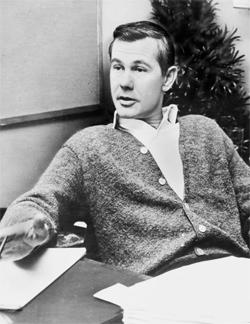 138
John William Carson was an American television host, comedian, writer, and producer. He is best known as the host of The Tonight Show Starring Johnny Carson (1962–1992). Carson received six Primetime...
138
John William Carson was an American television host, comedian, writer, and producer. He is best known as the host of The Tonight Show Starring Johnny Carson (1962–1992). Carson received six Primetime...
James Buchanan
 136
James Buchanan Jr. was an American lawyer, diplomat, and politician. He served as the 15th president of the United States from 1857 to 1861, as the secretary of State from 1845 to 1849, and...
136
James Buchanan Jr. was an American lawyer, diplomat, and politician. He served as the 15th president of the United States from 1857 to 1861, as the secretary of State from 1845 to 1849, and...
Neil Armstrong
 135
Neil Alden Armstrong was an American astronaut and aeronautical engineer who in 1969 became the first person to walk on the Moon. He was also a naval aviator, test pilot, and university professor.
135
Neil Alden Armstrong was an American astronaut and aeronautical engineer who in 1969 became the first person to walk on the Moon. He was also a naval aviator, test pilot, and university professor.
James K. Polk
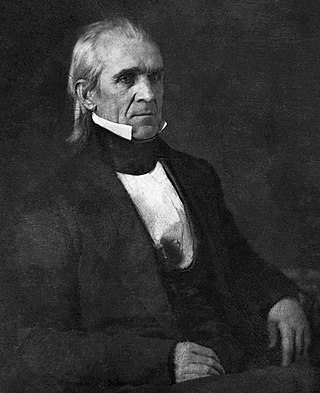 133
James Knox Polk was the 11th president of the United States, serving from 1845 to 1849. He also served as the 13th speaker of the House of Representatives from 1835 to 1839 and the ninth governor of...
133
James Knox Polk was the 11th president of the United States, serving from 1845 to 1849. He also served as the 13th speaker of the House of Representatives from 1835 to 1839 and the ninth governor of...
John the Apostle
 133
John the Apostle, also known as Saint John the Beloved and, in Eastern Orthodox Christianity, Saint John the Theologian, was one of the Twelve Apostles of Jesus according to the New Testament....
133
John the Apostle, also known as Saint John the Beloved and, in Eastern Orthodox Christianity, Saint John the Theologian, was one of the Twelve Apostles of Jesus according to the New Testament....
Millard Fillmore
 118
Millard Fillmore was the 13th president of the United States, serving from 1850 to 1853, the last president to have been a member of the Whig Party while in office. A former member of the U.S. House...
118
Millard Fillmore was the 13th president of the United States, serving from 1850 to 1853, the last president to have been a member of the Whig Party while in office. A former member of the U.S. House...
Herbert Hoover
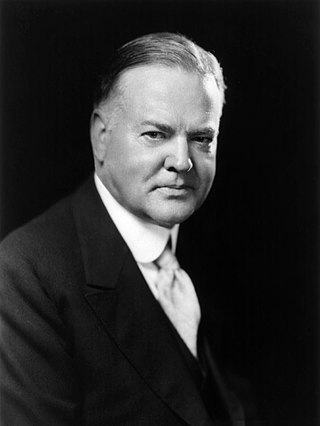 117
Herbert Clark Hoover was an American politician and humanitarian who served as the 31st president of the United States from 1929 to 1933. A member of the Republican Party, he held office during the...
117
Herbert Clark Hoover was an American politician and humanitarian who served as the 31st president of the United States from 1929 to 1933. A member of the Republican Party, he held office during the...
George W. Bush
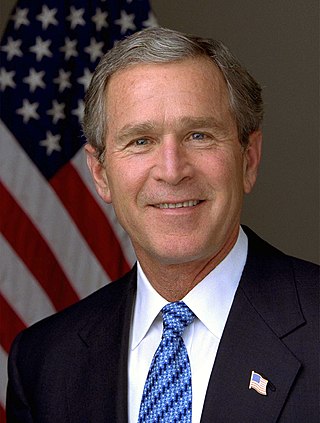 116
George Walker Bush is an American politician and businessman who served as the 43rd president of the United States from 2001 to 2009. A member of the Republican Party, he previously served as the...
116
George Walker Bush is an American politician and businessman who served as the 43rd president of the United States from 2001 to 2009. A member of the Republican Party, he previously served as the...
Samuel Morse
 115
Samuel Finley Breese Morse was an American inventor and painter. After having established his reputation as a portrait painter, in his middle age Morse contributed to the invention of a single-wire...
115
Samuel Finley Breese Morse was an American inventor and painter. After having established his reputation as a portrait painter, in his middle age Morse contributed to the invention of a single-wire...
Thomas Edison
 113
Thomas Alva Edison was an American inventor and businessman. He developed many devices in fields such as electric power generation, mass communication, sound recording, and motion pictures. These...
113
Thomas Alva Edison was an American inventor and businessman. He developed many devices in fields such as electric power generation, mass communication, sound recording, and motion pictures. These...
Douglas MacArthur
 109
Douglas MacArthur was an American military leader who served as General of the Army for the United States, as well as a field marshal to the Philippine Army. He served with distinction in World War...
109
Douglas MacArthur was an American military leader who served as General of the Army for the United States, as well as a field marshal to the Philippine Army. He served with distinction in World War...
Lord Byron
 106
George Gordon Byron, 6th Baron Byron was a British poet and peer. He is one of the major figures of the Romantic movement, and is regarded as being among the greatest of English poets. Among his...
106
George Gordon Byron, 6th Baron Byron was a British poet and peer. He is one of the major figures of the Romantic movement, and is regarded as being among the greatest of English poets. Among his...
James the Great
 102
James the Great was one of the Twelve Apostles of Jesus. According to the New Testament, he was the second of the apostles to die, and the first to be martyred. Saint James is the patron saint of...
102
James the Great was one of the Twelve Apostles of Jesus. According to the New Testament, he was the second of the apostles to die, and the first to be martyred. Saint James is the patron saint of...
Andrew the Apostle
 101
Andrew the Apostle, also called Saint Andrew, was an apostle of Jesus. According to the New Testament, he was a fisherman and one of the Twelve Apostles chosen by Jesus. The title First-Called stems...
101
Andrew the Apostle, also called Saint Andrew, was an apostle of Jesus. According to the New Testament, he was a fisherman and one of the Twelve Apostles chosen by Jesus. The title First-Called stems...
Paul the Apostle
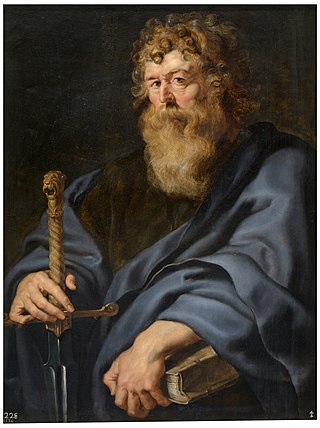 99
Paul, commonly known as Paul the Apostle and Saint Paul, was a Christian apostle who spread the teachings of Jesus in the first-century world. For his contributions towards the New Testament, he is...
99
Paul, commonly known as Paul the Apostle and Saint Paul, was a Christian apostle who spread the teachings of Jesus in the first-century world. For his contributions towards the New Testament, he is...
Francis of Assisi
 97
Giovanni di Pietro di Bernardone, known as Francis of Assisi, was an Italian mystic, poet and Catholic friar who founded the religious order of the Franciscans. He was inspired to lead a Christian...
97
Giovanni di Pietro di Bernardone, known as Francis of Assisi, was an Italian mystic, poet and Catholic friar who founded the religious order of the Franciscans. He was inspired to lead a Christian...
Alexander Fleming
 91
Sir Alexander Fleming was a Scottish physician and microbiologist, best known for discovering the world's first broadly effective antibiotic substance, which he named penicillin. His discovery in...
91
Sir Alexander Fleming was a Scottish physician and microbiologist, best known for discovering the world's first broadly effective antibiotic substance, which he named penicillin. His discovery in...
Joe Louis
 90
Joseph Louis Barrow was an American professional boxer who competed from 1934 to 1951. Nicknamed "the Brown Bomber", Louis is widely regarded as one of the greatest and most influential boxers of all...
90
Joseph Louis Barrow was an American professional boxer who competed from 1934 to 1951. Nicknamed "the Brown Bomber", Louis is widely regarded as one of the greatest and most influential boxers of all...
Dwight D. Eisenhower
 90
Dwight David Eisenhower, nicknamed Ike, was an American military officer and statesman who served as the 34th president of the United States from 1953 to 1961. During World War II, he was Supreme...
90
Dwight David Eisenhower, nicknamed Ike, was an American military officer and statesman who served as the 34th president of the United States from 1953 to 1961. During World War II, he was Supreme...
Harry S. Truman
 87
Harry S. Truman was the 33rd president of the United States, serving from 1945 to 1953. A member of the Democratic Party, he previously served as a United States senator from Missouri from 1935 to...
87
Harry S. Truman was the 33rd president of the United States, serving from 1945 to 1953. A member of the Democratic Party, he previously served as a United States senator from Missouri from 1935 to...
John Browning
 82
John Moses Browning was an American firearm designer who developed many varieties of military and civilian firearms, cartridges, and gun mechanisms, many of which are still in use around the world....
82
John Moses Browning was an American firearm designer who developed many varieties of military and civilian firearms, cartridges, and gun mechanisms, many of which are still in use around the world....
Saint Joseph
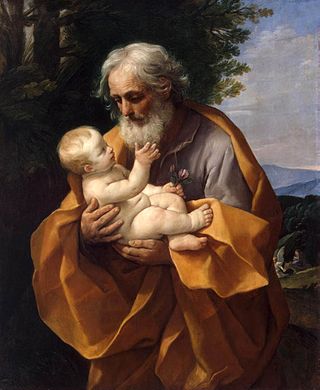 79
Joseph was a 1st-century Jewish man of Nazareth who, according to the canonical Gospels, was married to Mary, the mother of Jesus, and was the legal father of Jesus.
79
Joseph was a 1st-century Jewish man of Nazareth who, according to the canonical Gospels, was married to Mary, the mother of Jesus, and was the legal father of Jesus.
Charles Lindbergh
 74
Charles Augustus Lindbergh was an American aviator and military officer. On May 20–21, 1927, he made the first nonstop flight from New York City to Paris, a distance of 3,600 miles (5,800 km), flying...
74
Charles Augustus Lindbergh was an American aviator and military officer. On May 20–21, 1927, he made the first nonstop flight from New York City to Paris, a distance of 3,600 miles (5,800 km), flying...
Harriet Tubman
 70
Harriet Tubman was an American abolitionist and social activist. After escaping slavery, Tubman made some 13 missions to rescue approximately 70 enslaved people, including her family and friends,...
70
Harriet Tubman was an American abolitionist and social activist. After escaping slavery, Tubman made some 13 missions to rescue approximately 70 enslaved people, including her family and friends,...
Benjamin Dearborn
 69
Benjamin Dearborn (1754–1838) was a printer and mechanical inventor in Portsmouth, New Hampshire and Boston, Massachusetts in the late 18th and early 19th centuries. His inventions include the gold...
69
Benjamin Dearborn (1754–1838) was a printer and mechanical inventor in Portsmouth, New Hampshire and Boston, Massachusetts in the late 18th and early 19th centuries. His inventions include the gold...
Roland
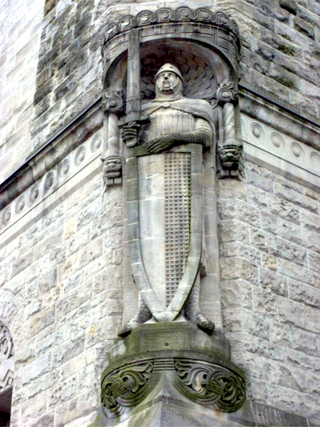 66
Roland was a Frankish military leader under Charlemagne who became one of the principal figures in the literary cycle known as the Matter of France. The historical Roland was military governor of the...
66
Roland was a Frankish military leader under Charlemagne who became one of the principal figures in the literary cycle known as the Matter of France. The historical Roland was military governor of the...
Arthur Compton
 66
Arthur Holly Compton was an American physicist who won the Nobel Prize in Physics in 1927 for his 1923 discovery of the Compton effect, which demonstrated the particle nature of electromagnetic...
66
Arthur Holly Compton was an American physicist who won the Nobel Prize in Physics in 1927 for his 1923 discovery of the Compton effect, which demonstrated the particle nature of electromagnetic...
Ronald Reagan
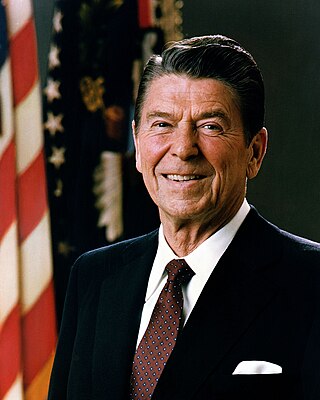 65
Ronald Wilson Reagan was an American politician and actor who served as the 40th president of the United States from 1981 to 1989. A member of the Republican Party, his presidency constituted the...
65
Ronald Wilson Reagan was an American politician and actor who served as the 40th president of the United States from 1981 to 1989. A member of the Republican Party, his presidency constituted the...
W. E. B. Du Bois
 65
William Edward Burghardt Du Bois was an American sociologist, socialist, historian, and Pan-Africanist civil rights activist.
65
William Edward Burghardt Du Bois was an American sociologist, socialist, historian, and Pan-Africanist civil rights activist.
Homer
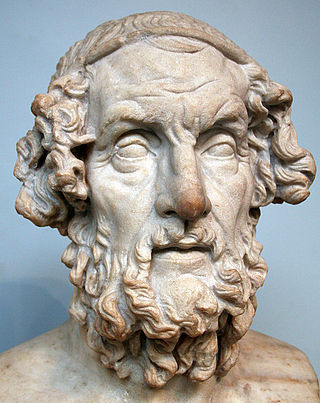 61
Homer was a Greek poet who is credited as the author of the Iliad and the Odyssey, two epic poems that are foundational works of ancient Greek literature. Homer is considered one of the most revered...
61
Homer was a Greek poet who is credited as the author of the Iliad and the Odyssey, two epic poems that are foundational works of ancient Greek literature. Homer is considered one of the most revered...
Richard Nixon
 61
Richard Milhous Nixon was the 37th president of the United States, serving from 1969 to 1974. A member of the Republican Party, he previously served as a representative and senator from California...
61
Richard Milhous Nixon was the 37th president of the United States, serving from 1969 to 1974. A member of the Republican Party, he previously served as a representative and senator from California...
Ernest Hemingway
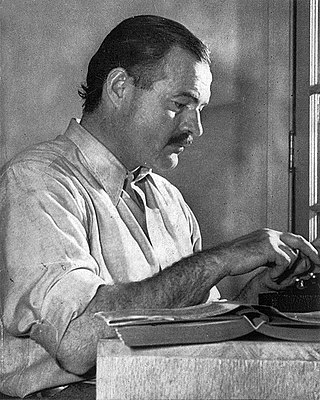 60
Ernest Miller Hemingway was an American novelist, short-story writer and journalist. Best known for an economical, understated style that significantly influenced later 20th-century writers, he is...
60
Ernest Miller Hemingway was an American novelist, short-story writer and journalist. Best known for an economical, understated style that significantly influenced later 20th-century writers, he is...
Lancelot
 56
Lancelot du Lac, also written as Launcelot and other variants, is a character in some versions of Arthurian legend where he is typically depicted as King Arthur's close companion and one of the...
56
Lancelot du Lac, also written as Launcelot and other variants, is a character in some versions of Arthurian legend where he is typically depicted as King Arthur's close companion and one of the...
Louis IX of France
 56
Louis IX, commonly revered as Saint Louis, was King of France from 1226 until his death in 1270. He is widely recognized as the most distinguished of the Direct Capetians. Following the death of his...
56
Louis IX, commonly revered as Saint Louis, was King of France from 1226 until his death in 1270. He is widely recognized as the most distinguished of the Direct Capetians. Following the death of his...
Cyrus McCormick
 56
Cyrus Hall McCormick was an American inventor and businessman who founded the McCormick Harvesting Machine Company, which later became part of the International Harvester Company in 1902. Originally...
56
Cyrus Hall McCormick was an American inventor and businessman who founded the McCormick Harvesting Machine Company, which later became part of the International Harvester Company in 1902. Originally...
Ella Fitzgerald
 55
Ella Jane Fitzgerald was an American jazz singer, sometimes referred to as the "First Lady of Song", "Queen of Jazz", and "Lady Ella". She was noted for her purity of tone, impeccable diction,...
55
Ella Jane Fitzgerald was an American jazz singer, sometimes referred to as the "First Lady of Song", "Queen of Jazz", and "Lady Ella". She was noted for her purity of tone, impeccable diction,...
Sybilla Righton Masters
 53
Sybilla Righton Masters was an American inventor. Masters was the first person residing in the American colonies to be given an English patent, and possibly the first known female machinery inventor...
53
Sybilla Righton Masters was an American inventor. Masters was the first person residing in the American colonies to be given an English patent, and possibly the first known female machinery inventor...
Samuel Colt
 51
Samuel Colt was an American inventor, industrialist, and businessman who established Colt's Patent Fire-Arms Manufacturing Company and made the mass production of revolvers commercially viable.
51
Samuel Colt was an American inventor, industrialist, and businessman who established Colt's Patent Fire-Arms Manufacturing Company and made the mass production of revolvers commercially viable.
William Faulkner
 50
William Cuthbert Faulkner was an American writer known for his novels and short stories set in the fictional Yoknapatawpha County, based on Lafayette County, Mississippi, where Faulkner spent most of...
50
William Cuthbert Faulkner was an American writer known for his novels and short stories set in the fictional Yoknapatawpha County, based on Lafayette County, Mississippi, where Faulkner spent most of...
Alexander von Humboldt
 50
Friedrich Wilhelm Heinrich Alexander von Humboldt was a German polymath, geographer, naturalist, explorer, and proponent of Romantic philosophy and science. He was the younger brother of the Prussian...
50
Friedrich Wilhelm Heinrich Alexander von Humboldt was a German polymath, geographer, naturalist, explorer, and proponent of Romantic philosophy and science. He was the younger brother of the Prussian...
Hannah Slater
 50
Hannah Slater was an early American pioneer and inventor. Some sources state that she was the first American woman to receive a patent, however others state that Hazel Irwin, who received a patent...
50
Hannah Slater was an early American pioneer and inventor. Some sources state that she was the first American woman to receive a patent, however others state that Hazel Irwin, who received a patent...
Saint George
 48
Saint George, also George of Lydda, was an early Christian martyr who is venerated as a saint in Christianity. According to tradition, he was a soldier in the Roman army. Of Cappadocian Greek origin,...
48
Saint George, also George of Lydda, was an early Christian martyr who is venerated as a saint in Christianity. According to tradition, he was a soldier in the Roman army. Of Cappadocian Greek origin,...
Charles Dickens
 47
Charles John Huffam Dickens was an English novelist and social critic who created some of the world's best-known fictional characters, and is regarded by many as the greatest novelist of the...
47
Charles John Huffam Dickens was an English novelist and social critic who created some of the world's best-known fictional characters, and is regarded by many as the greatest novelist of the...
Cornelius Atherton
 42
Cornelius Atherton (1737–1809), was an iron manufacturer, an inventor and an active gunmaker for patriot cause during the American Revolutionary War.
He became closely involved in the first large...
42
Cornelius Atherton (1737–1809), was an iron manufacturer, an inventor and an active gunmaker for patriot cause during the American Revolutionary War.
He became closely involved in the first large...
Lawrence Bragg
 42
Sir William Lawrence Bragg, was an Australian-born British physicist and X-ray crystallographer, discoverer (1912) of Bragg's law of X-ray diffraction, which is basic for the determination of crystal...
42
Sir William Lawrence Bragg, was an Australian-born British physicist and X-ray crystallographer, discoverer (1912) of Bragg's law of X-ray diffraction, which is basic for the determination of crystal...
Margaret Thatcher
 41
Margaret Hilda Thatcher, Baroness Thatcher, was a British stateswoman and Conservative politician who served as Prime Minister of the United Kingdom from 1979 to 1990 and Leader of the Conservative...
41
Margaret Hilda Thatcher, Baroness Thatcher, was a British stateswoman and Conservative politician who served as Prime Minister of the United Kingdom from 1979 to 1990 and Leader of the Conservative...
Thomas the Apostle
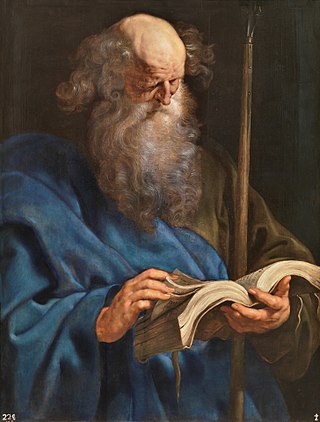 40
Thomas the Apostle, also known as Didymus, was one of the Twelve Apostles of Jesus according to the New Testament. Thomas is commonly known as "Doubting Thomas" because he initially doubted the...
40
Thomas the Apostle, also known as Didymus, was one of the Twelve Apostles of Jesus according to the New Testament. Thomas is commonly known as "Doubting Thomas" because he initially doubted the...
Simón Bolívar
 37
Simón José Antonio de la Santísima Trinidad Bolívar Palacios Ponte y Blanco was a Venezuelan military and political leader who led what are currently the countries of Colombia, Venezuela, Ecuador,...
37
Simón José Antonio de la Santísima Trinidad Bolívar Palacios Ponte y Blanco was a Venezuelan military and political leader who led what are currently the countries of Colombia, Venezuela, Ecuador,...
Mark the Evangelist
 37
Mark the Evangelist also known as John Mark or Saint Mark, is the person who is traditionally ascribed to be the author of the Gospel of Mark. Modern Bible scholars have concluded that the Gospel of...
37
Mark the Evangelist also known as John Mark or Saint Mark, is the person who is traditionally ascribed to be the author of the Gospel of Mark. Modern Bible scholars have concluded that the Gospel of...
Saint Lawrence
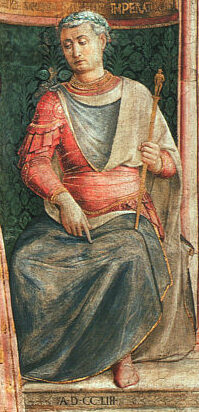 33
Saint Lawrence or Laurence was one of the seven deacons of the city of Rome under Pope Sixtus II who were martyred in the persecution of the Christians that the Roman Emperor Valerian ordered in 258.
33
Saint Lawrence or Laurence was one of the seven deacons of the city of Rome under Pope Sixtus II who were martyred in the persecution of the Christians that the Roman Emperor Valerian ordered in 258.
Robert H. Goddard
 33
Robert Hutchings Goddard was an American engineer, professor, physicist, and inventor who is credited with creating and building the world's first liquid-fueled rocket, which was successfully...
33
Robert Hutchings Goddard was an American engineer, professor, physicist, and inventor who is credited with creating and building the world's first liquid-fueled rocket, which was successfully...
Anthony of Padua
 32
Anthony of Padua, OFM or Anthony of Lisbon was a Portuguese Catholic priest and friar of the Franciscan Order.
32
Anthony of Padua, OFM or Anthony of Lisbon was a Portuguese Catholic priest and friar of the Franciscan Order.
Virgil
 31
Publius Vergilius Maro, usually called Virgil or Vergil in English, was an ancient Roman poet of the Augustan period. He composed three of the most famous poems in Latin literature: the Eclogues, the...
31
Publius Vergilius Maro, usually called Virgil or Vergil in English, was an ancient Roman poet of the Augustan period. He composed three of the most famous poems in Latin literature: the Eclogues, the...
Charles Darwin
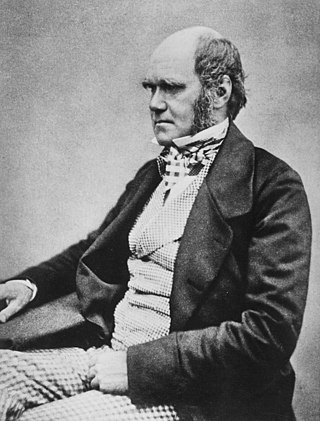 31
Charles Robert Darwin was an English naturalist, geologist and biologist, widely known for his contributions to evolutionary biology. His proposition that all species of life have descended from a...
31
Charles Robert Darwin was an English naturalist, geologist and biologist, widely known for his contributions to evolutionary biology. His proposition that all species of life have descended from a...
Napoleon
 30
Napoleon Bonaparte, later known by his regnal name Napoleon I, was a French emperor and military commander who rose to prominence during the French Revolution and led successful campaigns during the...
30
Napoleon Bonaparte, later known by his regnal name Napoleon I, was a French emperor and military commander who rose to prominence during the French Revolution and led successful campaigns during the...
William Shakespeare
 29
William Shakespeare was an English playwright, poet, and actor. He is widely regarded as the greatest writer in the English language and the world's pre-eminent dramatist. He is often called...
29
William Shakespeare was an English playwright, poet, and actor. He is widely regarded as the greatest writer in the English language and the world's pre-eminent dramatist. He is often called...
Michael (archangel)
 28
Michael, also called Saint Michael the Archangel, Archangel Michael and Saint Michael the Taxiarch is an archangel in Judaism, Christianity, Islam, and the Baha'i faith. The earliest surviving...
28
Michael, also called Saint Michael the Archangel, Archangel Michael and Saint Michael the Taxiarch is an archangel in Judaism, Christianity, Islam, and the Baha'i faith. The earliest surviving...
Leonardo da Vinci
 28
Leonardo di ser Piero da Vinci was an Italian polymath of the High Renaissance who was active as a painter, draughtsman, engineer, scientist, theorist, sculptor, and architect. While his fame...
28
Leonardo di ser Piero da Vinci was an Italian polymath of the High Renaissance who was active as a painter, draughtsman, engineer, scientist, theorist, sculptor, and architect. While his fame...
Dante Alighieri
 26
Dante Alighieri, most likely baptized Durante di Alighiero degli Alighieri and often referred to as Dante, was an Italian poet, writer, and philosopher. His Divine Comedy, originally called Comedìa...
26
Dante Alighieri, most likely baptized Durante di Alighiero degli Alighieri and often referred to as Dante, was an Italian poet, writer, and philosopher. His Divine Comedy, originally called Comedìa...
Brigid of Kildare
 25
Saint Brigid of Kildare or Saint Brigid of Ireland is the patroness saint of Ireland, and one of its three national saints along with Patrick and Columba. According to medieval Irish hagiographies,...
25
Saint Brigid of Kildare or Saint Brigid of Ireland is the patroness saint of Ireland, and one of its three national saints along with Patrick and Columba. According to medieval Irish hagiographies,...
Victor Hugo
 25
Victor-Marie Hugo, vicomte Hugo, sometimes nicknamed the Ocean Man, was a French Romantic writer and politician. During a literary career that spanned more than sixty years, he wrote in a variety of...
25
Victor-Marie Hugo, vicomte Hugo, sometimes nicknamed the Ocean Man, was a French Romantic writer and politician. During a literary career that spanned more than sixty years, he wrote in a variety of...
Wolfgang Amadeus Mozart
 24
Wolfgang Amadeus Mozart was a prolific and influential composer of the Classical period. Despite his short life, his rapid pace of composition resulted in more than 800 works representing virtually...
24
Wolfgang Amadeus Mozart was a prolific and influential composer of the Classical period. Despite his short life, his rapid pace of composition resulted in more than 800 works representing virtually...
Friedrich Schiller
 24
Johann Christoph Friedrich von Schiller was a German polymath and poet, playwright, historian, philosopher, physician, lawyer. Schiller is considered by most Germans to be Germany's most important...
24
Johann Christoph Friedrich von Schiller was a German polymath and poet, playwright, historian, philosopher, physician, lawyer. Schiller is considered by most Germans to be Germany's most important...
Alexandre Dumas
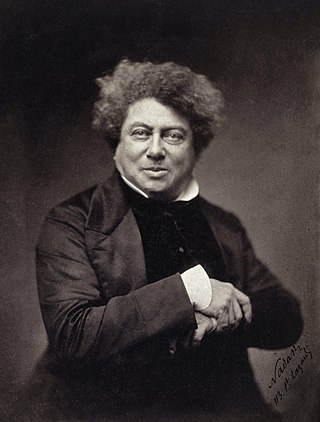 23
Alexandre Dumas, also known as Alexandre Dumas père, was a French novelist and playwright.
23
Alexandre Dumas, also known as Alexandre Dumas père, was a French novelist and playwright.
Ferdinand Magellan
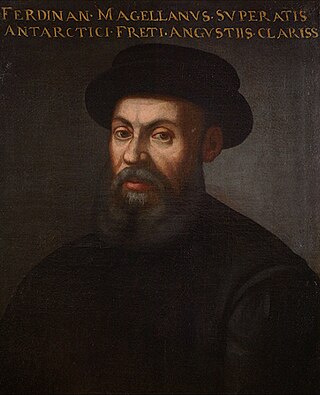 22
Ferdinand Magellan was a Portuguese explorer best known for having planned and led the 1519 Spanish expedition to the East Indies across the Pacific Ocean to open a maritime trade route, during which...
22
Ferdinand Magellan was a Portuguese explorer best known for having planned and led the 1519 Spanish expedition to the East Indies across the Pacific Ocean to open a maritime trade route, during which...
Guglielmo Marconi
 22
Guglielmo Giovanni Maria Marconi, 1st Marquis of Marconi was an Italian inventor and electrical engineer, known for his creation of a practical radio wave–based wireless telegraph system. This led to...
22
Guglielmo Giovanni Maria Marconi, 1st Marquis of Marconi was an Italian inventor and electrical engineer, known for his creation of a practical radio wave–based wireless telegraph system. This led to...
Lajos Kossuth
 21
Lajos Kossuth de Udvard et Kossuthfalva was a Hungarian nobleman, lawyer, journalist, politician, statesman and governor-president of the Kingdom of Hungary during the revolution of 1848–1849.
21
Lajos Kossuth de Udvard et Kossuthfalva was a Hungarian nobleman, lawyer, journalist, politician, statesman and governor-president of the Kingdom of Hungary during the revolution of 1848–1849.
Moctezuma II
 21
Motecuhzoma Xocoyotzin, referred to retroactively in European sources as Moctezuma II, was the ninth Emperor of the Aztec Empire, reigning from 1502 or 1503 to 1520. Through his marriage with Queen...
21
Motecuhzoma Xocoyotzin, referred to retroactively in European sources as Moctezuma II, was the ninth Emperor of the Aztec Empire, reigning from 1502 or 1503 to 1520. Through his marriage with Queen...
Johann Sebastian Bach
 21
Johann Sebastian Bach was a German composer and musician of the late Baroque period. He is known for his prolific authorship of music across a variety of instruments and forms, including; orchestral...
21
Johann Sebastian Bach was a German composer and musician of the late Baroque period. He is known for his prolific authorship of music across a variety of instruments and forms, including; orchestral...
Hans Geiger
 21
Johannes Wilhelm "Hans" Geiger was a German physicist. He is best known as the co-inventor of the detector component of the Geiger counter and for the Geiger–Marsden experiment which discovered the...
21
Johannes Wilhelm "Hans" Geiger was a German physicist. He is best known as the co-inventor of the detector component of the Geiger counter and for the Geiger–Marsden experiment which discovered the...
Luke the Evangelist
 20
Luke the Evangelist is one of the Four Evangelists—the four traditionally ascribed authors of the canonical gospels. The Early Church Fathers ascribed to him authorship of both the Gospel of Luke and...
20
Luke the Evangelist is one of the Four Evangelists—the four traditionally ascribed authors of the canonical gospels. The Early Church Fathers ascribed to him authorship of both the Gospel of Luke and...
Michael Faraday
 20
Michael Faraday was a British scientist who contributed to the study of electromagnetism and electrochemistry. His main discoveries include the principles underlying electromagnetic induction,...
20
Michael Faraday was a British scientist who contributed to the study of electromagnetism and electrochemistry. His main discoveries include the principles underlying electromagnetic induction,...
Raphael
 20
Raffaello Sanzio da Urbino, now generally known in English as Raphael, was an Italian painter and architect of the High Renaissance. His work is admired for its clarity of form, ease of composition,...
20
Raffaello Sanzio da Urbino, now generally known in English as Raphael, was an Italian painter and architect of the High Renaissance. His work is admired for its clarity of form, ease of composition,...
Pablo Picasso
 20
Pablo Ruiz Picasso was a Spanish painter, sculptor, printmaker, ceramicist, and theatre designer who spent most of his adult life in France. One of the most influential artists of the 20th century,...
20
Pablo Ruiz Picasso was a Spanish painter, sculptor, printmaker, ceramicist, and theatre designer who spent most of his adult life in France. One of the most influential artists of the 20th century,...
Thomas Gainsborough
 19
Thomas Gainsborough was an English portrait and landscape painter, draughtsman, and printmaker. Along with his rival Sir Joshua Reynolds, he is considered one of the most important British artists of...
19
Thomas Gainsborough was an English portrait and landscape painter, draughtsman, and printmaker. Along with his rival Sir Joshua Reynolds, he is considered one of the most important British artists of...
James Watt
 19
James Watt was a Scottish inventor, mechanical engineer, and chemist who improved on Thomas Newcomen's 1712 Newcomen steam engine with his Watt steam engine in 1776, which was fundamental to the...
19
James Watt was a Scottish inventor, mechanical engineer, and chemist who improved on Thomas Newcomen's 1712 Newcomen steam engine with his Watt steam engine in 1776, which was fundamental to the...
Claude Monet
 19
Oscar-Claude Monet was a French painter and founder of impressionist painting who is seen as a key precursor to modernism, especially in his attempts to paint nature as he perceived it. During his...
19
Oscar-Claude Monet was a French painter and founder of impressionist painting who is seen as a key precursor to modernism, especially in his attempts to paint nature as he perceived it. During his...
Voltaire
 18
François-Marie Arouet, known by his nom de plume M. de Voltaire, was a French Enlightenment writer, philosopher (philosophe), satirist, and historian. Famous for his wit and his criticism of...
18
François-Marie Arouet, known by his nom de plume M. de Voltaire, was a French Enlightenment writer, philosopher (philosophe), satirist, and historian. Famous for his wit and his criticism of...
Joseph-Louis Lagrange
 18
Joseph-Louis Lagrange, also reported as Giuseppe Luigi Lagrange or Lagrangia, was an Italian mathematician, physicist and astronomer, later naturalized French. He made significant contributions to...
18
Joseph-Louis Lagrange, also reported as Giuseppe Luigi Lagrange or Lagrangia, was an Italian mathematician, physicist and astronomer, later naturalized French. He made significant contributions to...
Rembrandt
 18
Rembrandt Harmenszoon van Rijn, usually simply known as Rembrandt, was a Dutch Golden Age painter, printmaker, and draughtsman. He is generally considered one of the greatest visual artists in the...
18
Rembrandt Harmenszoon van Rijn, usually simply known as Rembrandt, was a Dutch Golden Age painter, printmaker, and draughtsman. He is generally considered one of the greatest visual artists in the...
Genevieve
 17
Genevieve was a consecrated virgin, and is the patron saint of Paris in the Catholic and Orthodox traditions. Her feast day is on 3 January.
17
Genevieve was a consecrated virgin, and is the patron saint of Paris in the Catholic and Orthodox traditions. Her feast day is on 3 January.
Galen
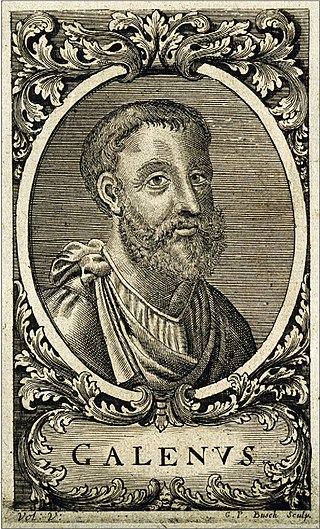 17
Aelius Galenus or Claudius Galenus, often anglicized as Galen or Galen of Pergamon, was a Roman and Greek physician, surgeon, and philosopher. Considered to be one of the most accomplished of all...
17
Aelius Galenus or Claudius Galenus, often anglicized as Galen or Galen of Pergamon, was a Roman and Greek physician, surgeon, and philosopher. Considered to be one of the most accomplished of all...
Miguel de Cervantes
 16
Miguel de Cervantes Saavedra was an Early Modern Spanish writer widely regarded as the greatest writer in the Spanish language and one of the world's pre-eminent novelists. He is best known for his...
16
Miguel de Cervantes Saavedra was an Early Modern Spanish writer widely regarded as the greatest writer in the Spanish language and one of the world's pre-eminent novelists. He is best known for his...
Ludwig van Beethoven
 16
Ludwig van Beethoven was a German composer and pianist. He is one of the most revered figures in the history of Western music; his works rank among the most performed of the classical music...
16
Ludwig van Beethoven was a German composer and pianist. He is one of the most revered figures in the history of Western music; his works rank among the most performed of the classical music...
Franz Schubert
 16
Franz Peter Schubert was an Austrian composer of the late Classical and early Romantic eras. Despite his short life, Schubert left behind a vast oeuvre, including more than 600 secular vocal works,...
16
Franz Peter Schubert was an Austrian composer of the late Classical and early Romantic eras. Despite his short life, Schubert left behind a vast oeuvre, including more than 600 secular vocal works,...
Frederick Sanger
 15
Frederick Sanger was a British biochemist who received the Nobel Prize in Chemistry twice.
15
Frederick Sanger was a British biochemist who received the Nobel Prize in Chemistry twice.
Bernardino of Siena
 15
Bernardino of Siena, OFM, was an Italian Catholic priest and Franciscan missionary preacher in Italy. He was a systematizer of scholastic economics.
15
Bernardino of Siena, OFM, was an Italian Catholic priest and Franciscan missionary preacher in Italy. He was a systematizer of scholastic economics.
Giuseppe Verdi
 15
Giuseppe Fortunino Francesco Verdi was an Italian composer best known for his operas. He was born near Busseto to a provincial family of moderate means, receiving a musical education with the help of...
15
Giuseppe Fortunino Francesco Verdi was an Italian composer best known for his operas. He was born near Busseto to a provincial family of moderate means, receiving a musical education with the help of...
Giuseppe Garibaldi
 15
Giuseppe Maria Garibaldi was an Italian general, patriot, revolutionary and republican. He contributed to Italian unification (Risorgimento) and the creation of the Kingdom of Italy. He is considered...
15
Giuseppe Maria Garibaldi was an Italian general, patriot, revolutionary and republican. He contributed to Italian unification (Risorgimento) and the creation of the Kingdom of Italy. He is considered...
John Steinbeck
 15
John Ernst Steinbeck was an American writer. He won the 1962 Nobel Prize in Literature "for his realistic and imaginative writings, combining as they do sympathetic humor and keen social perception"....
15
John Ernst Steinbeck was an American writer. He won the 1962 Nobel Prize in Literature "for his realistic and imaginative writings, combining as they do sympathetic humor and keen social perception"....
Marie Curie
 14
Maria Salomea Skłodowska-Curie, known simply as Marie Curie, was a Polish and naturalised-French physicist and chemist who conducted pioneering research on radioactivity. She was the first woman to...
14
Maria Salomea Skłodowska-Curie, known simply as Marie Curie, was a Polish and naturalised-French physicist and chemist who conducted pioneering research on radioactivity. She was the first woman to...
Frédéric Chopin
 14
Frédéric François Chopin was a Polish composer and virtuoso pianist of the Romantic period, who wrote primarily for solo piano. He has maintained worldwide renown as a leading musician of his era,...
14
Frédéric François Chopin was a Polish composer and virtuoso pianist of the Romantic period, who wrote primarily for solo piano. He has maintained worldwide renown as a leading musician of his era,...
Lord Kelvin
 14
William Thomson, 1st Baron Kelvin, was a British mathematician, mathematical physicist and engineer born in Belfast. He was the professor of Natural Philosophy at the University of Glasgow for 53...
14
William Thomson, 1st Baron Kelvin, was a British mathematician, mathematical physicist and engineer born in Belfast. He was the professor of Natural Philosophy at the University of Glasgow for 53...
John Lennon
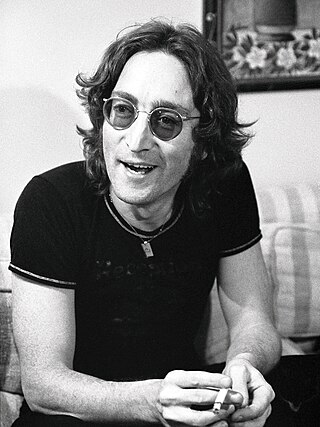 14
John Winston Ono Lennon was an English singer, songwriter and musician. He gained worldwide fame as the founder, co-songwriter, co-lead vocalist and rhythm guitarist of the Beatles. His work included...
14
John Winston Ono Lennon was an English singer, songwriter and musician. He gained worldwide fame as the founder, co-songwriter, co-lead vocalist and rhythm guitarist of the Beatles. His work included...
Francisco Pizarro
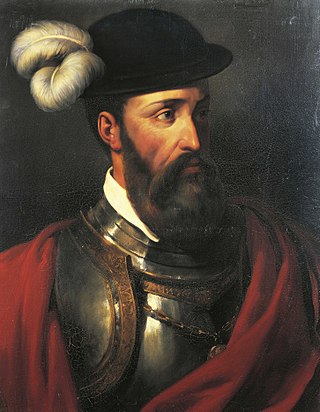 13
Francisco Pizarro, Marquess of the Atabillos was a Spanish conquistador, best known for his expeditions that led to the Spanish conquest of the Inca Empire.
13
Francisco Pizarro, Marquess of the Atabillos was a Spanish conquistador, best known for his expeditions that led to the Spanish conquest of the Inca Empire.
Vincent van Gogh
 13
Vincent Willem van Gogh was a Dutch Post-Impressionist painter who is among the most famous and influential figures in the history of Western art. In just over a decade, he created approximately 2100...
13
Vincent Willem van Gogh was a Dutch Post-Impressionist painter who is among the most famous and influential figures in the history of Western art. In just over a decade, he created approximately 2100...
Plato
 13
Plato, born Aristocles, was an ancient Greek philosopher of the Classical period who is considered a foundational thinker in Western philosophy and an innovator of the written dialogue and dialectic...
13
Plato, born Aristocles, was an ancient Greek philosopher of the Classical period who is considered a foundational thinker in Western philosophy and an innovator of the written dialogue and dialectic...
Hercules
 13
Hercules is the Roman equivalent of the Greek divine hero Heracles, son of Jupiter and the mortal Alcmena. In classical mythology, Hercules is famous for his strength and for his numerous far-ranging...
13
Hercules is the Roman equivalent of the Greek divine hero Heracles, son of Jupiter and the mortal Alcmena. In classical mythology, Hercules is famous for his strength and for his numerous far-ranging...
Saint Patrick
 13
Saint Patrick was a fifth-century Romano-British Christian missionary and bishop in Ireland. Known as the "Apostle of Ireland", he is the primary patron saint of Ireland, the other patron saints...
13
Saint Patrick was a fifth-century Romano-British Christian missionary and bishop in Ireland. Known as the "Apostle of Ireland", he is the primary patron saint of Ireland, the other patron saints...
Charlie Chaplin
 13
Sir Charles Spencer Chaplin was an English comic actor, filmmaker, and composer who rose to fame in the era of silent film. He became a worldwide icon through his screen persona, the Tramp, and is...
13
Sir Charles Spencer Chaplin was an English comic actor, filmmaker, and composer who rose to fame in the era of silent film. He became a worldwide icon through his screen persona, the Tramp, and is...
Bernard of Clairvaux
 12
Bernard of Clairvaux, O. Cist., venerated as Saint Bernard, was an abbot, mystic, co-founder of the Knights Templar, and a major leader in the reformation of the Benedictine Order through the nascent...
12
Bernard of Clairvaux, O. Cist., venerated as Saint Bernard, was an abbot, mystic, co-founder of the Knights Templar, and a major leader in the reformation of the Benedictine Order through the nascent...
Francis Drake
 12
Sir Francis Drake was an English explorer and privateer best known for his circumnavigation of the world in a single expedition between 1577 and 1580. This was the first English circumnavigation, and...
12
Sir Francis Drake was an English explorer and privateer best known for his circumnavigation of the world in a single expedition between 1577 and 1580. This was the first English circumnavigation, and...
Augustus
 12
Gaius Julius Caesar Augustus, also known as Octavian, was the founder of the Roman Empire. He reigned as the first Roman emperor from 27 BC until his death in AD 14. The reign of Augustus initiated...
12
Gaius Julius Caesar Augustus, also known as Octavian, was the founder of the Roman Empire. He reigned as the first Roman emperor from 27 BC until his death in AD 14. The reign of Augustus initiated...
Saint Dominic
 12
Saint Dominic,, also known as Dominic de Guzmán, was a Castilian Catholic priest and the founder of the Dominican Order. He is the patron saint of astronomers and natural scientists, and he and his...
12
Saint Dominic,, also known as Dominic de Guzmán, was a Castilian Catholic priest and the founder of the Dominican Order. He is the patron saint of astronomers and natural scientists, and he and his...
Blaise Pascal
 12
Blaise Pascal was a French mathematician, physicist, inventor, philosopher, and Catholic writer.
12
Blaise Pascal was a French mathematician, physicist, inventor, philosopher, and Catholic writer.
Meriwether Lewis
 12
Meriwether Lewis was an American explorer, soldier, politician, and public administrator, best known for his role as the leader of the Lewis and Clark Expedition, also known as the Corps of...
12
Meriwether Lewis was an American explorer, soldier, politician, and public administrator, best known for his role as the leader of the Lewis and Clark Expedition, also known as the Corps of...
Charlemagne
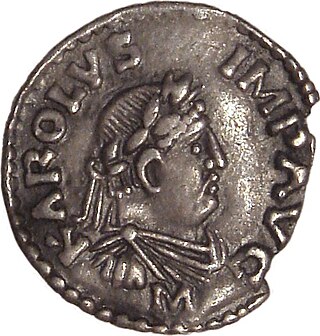 12
Charlemagne was King of the Franks from 768, King of the Lombards from 774, and Emperor of the Carolingian Empire from 800, holding all these titles until his death in 814. Charlemagne succeeded in...
12
Charlemagne was King of the Franks from 768, King of the Lombards from 774, and Emperor of the Carolingian Empire from 800, holding all these titles until his death in 814. Charlemagne succeeded in...
Galileo Galilei
 12
Galileo di Vincenzo Bonaiuti de' Galilei, commonly referred to as Galileo Galilei or simply Galileo, was an Italian astronomer, physicist and engineer, sometimes described as a polymath. He was born...
12
Galileo di Vincenzo Bonaiuti de' Galilei, commonly referred to as Galileo Galilei or simply Galileo, was an Italian astronomer, physicist and engineer, sometimes described as a polymath. He was born...
Willie Mays
 11
Willie Howard Mays Jr., nicknamed "the Say Hey Kid", is an American former center fielder in Major League Baseball (MLB). Regarded as one of the greatest players ever, Mays ranks second behind only...
11
Willie Howard Mays Jr., nicknamed "the Say Hey Kid", is an American former center fielder in Major League Baseball (MLB). Regarded as one of the greatest players ever, Mays ranks second behind only...
Jean-Jacques Rousseau
 11
Jean-Jacques Rousseau was a Genevan philosopher (philosophe), writer, and composer. His political philosophy influenced the progress of the Age of Enlightenment throughout Europe, as well as aspects...
11
Jean-Jacques Rousseau was a Genevan philosopher (philosophe), writer, and composer. His political philosophy influenced the progress of the Age of Enlightenment throughout Europe, as well as aspects...
Johann Wolfgang von Goethe
 11
Johann Wolfgang von Goethe was a German polymath and writer, who is widely regarded as the greatest and most influential writer in the German language. His work has had a profound and wide-ranging...
11
Johann Wolfgang von Goethe was a German polymath and writer, who is widely regarded as the greatest and most influential writer in the German language. His work has had a profound and wide-ranging...
Louis Pasteur
 11
Louis Pasteur was a French chemist, pharmacist, and microbiologist renowned for his discoveries of the principles of vaccination, microbial fermentation, and pasteurization, the last of which was...
11
Louis Pasteur was a French chemist, pharmacist, and microbiologist renowned for his discoveries of the principles of vaccination, microbial fermentation, and pasteurization, the last of which was...
Julius Caesar
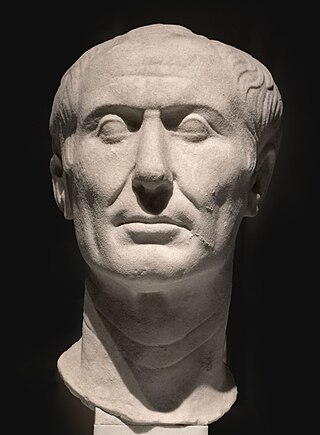 10
Gaius Julius Caesar was a Roman general and statesman. A member of the First Triumvirate, Caesar led the Roman armies in the Gallic Wars before defeating his political rival Pompey in a civil war,...
10
Gaius Julius Caesar was a Roman general and statesman. A member of the First Triumvirate, Caesar led the Roman armies in the Gallic Wars before defeating his political rival Pompey in a civil war,...
Gottlieb Daimler
 10
Gottlieb Wilhelm Daimler was a German engineer, industrial designer and industrialist born in Schorndorf, in what is now Germany. He was a pioneer of internal-combustion engines and automobile...
10
Gottlieb Wilhelm Daimler was a German engineer, industrial designer and industrialist born in Schorndorf, in what is now Germany. He was a pioneer of internal-combustion engines and automobile...
Elvis Presley
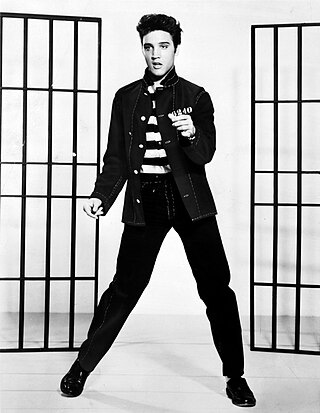 10
Elvis Aaron Presley, also known mononymously as Elvis, was an American singer and actor. Known as the "King of Rock and Roll", he is regarded as one of the most significant cultural figures of the...
10
Elvis Aaron Presley, also known mononymously as Elvis, was an American singer and actor. Known as the "King of Rock and Roll", he is regarded as one of the most significant cultural figures of the...
Alfred Nobel
 9
Alfred Bernhard Nobel was a Swedish chemist, inventor, engineer and businessman. He is known for inventing dynamite as well as having bequeathed his fortune to establish the Nobel Prize. He also made...
9
Alfred Bernhard Nobel was a Swedish chemist, inventor, engineer and businessman. He is known for inventing dynamite as well as having bequeathed his fortune to establish the Nobel Prize. He also made...
Michelangelo
 9
Michelangelo di Lodovico Buonarroti Simoni, known mononymously as Michelangelo, was an Italian sculptor, painter, architect, and poet of the High Renaissance. Born in the Republic of Florence, his...
9
Michelangelo di Lodovico Buonarroti Simoni, known mononymously as Michelangelo, was an Italian sculptor, painter, architect, and poet of the High Renaissance. Born in the Republic of Florence, his...
Émile Zola
 8
Émile Édouard Charles Antoine Zola was a French novelist, journalist, playwright, the best-known practitioner of the literary school of naturalism, and an important contributor to the development of...
8
Émile Édouard Charles Antoine Zola was a French novelist, journalist, playwright, the best-known practitioner of the literary school of naturalism, and an important contributor to the development of...
Ovid
 8
Publius Ovidius Naso, known in English as Ovid, was a Roman poet who lived during the reign of Augustus. He was a younger contemporary of Virgil and Horace, with whom he is often ranked as one of the...
8
Publius Ovidius Naso, known in English as Ovid, was a Roman poet who lived during the reign of Augustus. He was a younger contemporary of Virgil and Horace, with whom he is often ranked as one of the...
Alessandro Volta
 8
Alessandro Giuseppe Antonio Anastasio Volta was an Italian physicist and chemist who was a pioneer of electricity and power and is credited as the inventor of the electric battery and the discoverer...
8
Alessandro Giuseppe Antonio Anastasio Volta was an Italian physicist and chemist who was a pioneer of electricity and power and is credited as the inventor of the electric battery and the discoverer...
Johannes Brahms
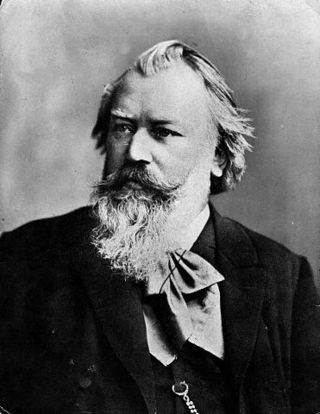 8
Johannes Brahms was a German composer, pianist, and conductor of the mid-Romantic period. Born in Hamburg into a Lutheran family, he spent much of his professional life in Vienna. He is sometimes...
8
Johannes Brahms was a German composer, pianist, and conductor of the mid-Romantic period. Born in Hamburg into a Lutheran family, he spent much of his professional life in Vienna. He is sometimes...
Elizabeth II
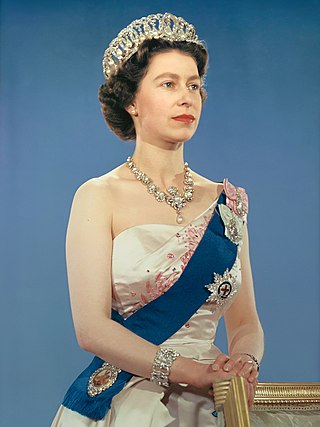 8
Elizabeth II was Queen of the United Kingdom and other Commonwealth realms from 6 February 1952 until her death in 2022. She was queen regnant of 32 sovereign states over the course of her lifetime...
8
Elizabeth II was Queen of the United Kingdom and other Commonwealth realms from 6 February 1952 until her death in 2022. She was queen regnant of 32 sovereign states over the course of her lifetime...
Ralph Bunche
 8
Ralph Johnson Bunche was an American political scientist, diplomat, and leading actor in the mid-20th-century decolonization process and US civil rights movement, who received the 1950 Nobel Peace...
8
Ralph Johnson Bunche was an American political scientist, diplomat, and leading actor in the mid-20th-century decolonization process and US civil rights movement, who received the 1950 Nobel Peace...
Achilles
 8
In Greek mythology, Achilles or Achilleus was a hero of the Trojan War who was known as being the greatest of all the Greek warriors. A central character in Homer's Iliad, he was the son of the...
8
In Greek mythology, Achilles or Achilleus was a hero of the Trojan War who was known as being the greatest of all the Greek warriors. A central character in Homer's Iliad, he was the son of the...
Nikola Tesla
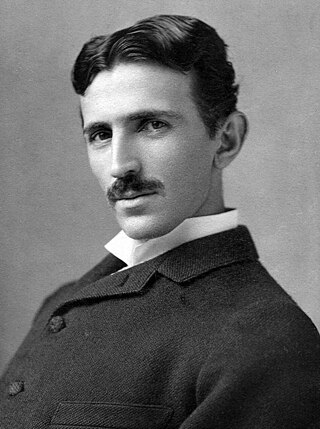 7
Nikola Tesla was a Serbian-American inventor, electrical engineer, mechanical engineer, and futurist. He is known for his contributions to the design of the modern alternating current (AC)...
7
Nikola Tesla was a Serbian-American inventor, electrical engineer, mechanical engineer, and futurist. He is known for his contributions to the design of the modern alternating current (AC)...
Robert Schuman
 7
Jean-Baptiste Nicolas Robert Schuman was a Luxembourg-born French statesman. Schuman was a Christian democratic political thinker and activist. Twice Prime Minister of France, a reformist Minister of...
7
Jean-Baptiste Nicolas Robert Schuman was a Luxembourg-born French statesman. Schuman was a Christian democratic political thinker and activist. Twice Prime Minister of France, a reformist Minister of...
Ada Lovelace
 7
Augusta Ada King, Countess of Lovelace was an English mathematician and writer, chiefly known for her work on Charles Babbage's proposed mechanical general-purpose computer, the Analytical Engine....
7
Augusta Ada King, Countess of Lovelace was an English mathematician and writer, chiefly known for her work on Charles Babbage's proposed mechanical general-purpose computer, the Analytical Engine....
Johannes Kepler
 7
Johannes Kepler was a German astronomer, mathematician, astrologer, natural philosopher and writer on music. He is a key figure in the 17th-century Scientific Revolution, best known for his laws of...
7
Johannes Kepler was a German astronomer, mathematician, astrologer, natural philosopher and writer on music. He is a key figure in the 17th-century Scientific Revolution, best known for his laws of...
Gioachino Rossini
 7
Gioachino Antonio Rossini was an Italian composer who gained fame for his 39 operas, although he also wrote many songs, some chamber music and piano pieces and some sacred music. He set new standards...
7
Gioachino Antonio Rossini was an Italian composer who gained fame for his 39 operas, although he also wrote many songs, some chamber music and piano pieces and some sacred music. He set new standards...
Joseph Erlanger
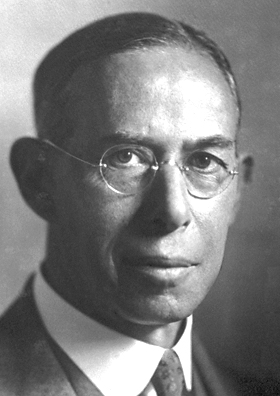 6
Joseph Erlanger was an American physiologist who is best known for his contributions to the field of neuroscience. Together with Herbert Spencer Gasser, he identified several varieties of nerve fiber...
6
Joseph Erlanger was an American physiologist who is best known for his contributions to the field of neuroscience. Together with Herbert Spencer Gasser, he identified several varieties of nerve fiber...
Hadrian
 6
Hadrian was Roman emperor from 117 to 138. Hadrian was born in Italica, close to modern Seville in Spain, an Italic settlement in Hispania Baetica; his branch of the Aelia gens, the Aeli Hadriani,...
6
Hadrian was Roman emperor from 117 to 138. Hadrian was born in Italica, close to modern Seville in Spain, an Italic settlement in Hispania Baetica; his branch of the Aelia gens, the Aeli Hadriani,...
Salvador Dalí
 6
Salvador Domingo Felipe Jacinto Dalí i Domènech, Marquess of Dalí of Púbol, known as Salvador Dalí, was a Spanish surrealist artist renowned for his technical skill, precise draftsmanship, and the...
6
Salvador Domingo Felipe Jacinto Dalí i Domènech, Marquess of Dalí of Púbol, known as Salvador Dalí, was a Spanish surrealist artist renowned for his technical skill, precise draftsmanship, and the...
Marcus Aurelius
 6
Marcus Aurelius Antoninus was Roman emperor from 161 to 180 and a Stoic philosopher. He was a member of the Nerva–Antonine dynasty, the last of the rulers later known as the Five Good Emperors and...
6
Marcus Aurelius Antoninus was Roman emperor from 161 to 180 and a Stoic philosopher. He was a member of the Nerva–Antonine dynasty, the last of the rulers later known as the Five Good Emperors and...
Ferdinand von Zeppelin
 6
Count Ferdinand von Zeppelin was a German general and later inventor of the Zeppelin rigid airships. His name became synonymous with airships and dominated long-distance flight until the 1930s. He...
6
Count Ferdinand von Zeppelin was a German general and later inventor of the Zeppelin rigid airships. His name became synonymous with airships and dominated long-distance flight until the 1930s. He...
Saint Cecilia
 6
Saint Cecilia, also spelled Cecelia, was a Roman virgin martyr and is venerated in Catholic, Orthodox, Anglican, and some Lutheran churches, such as the Church of Sweden. She became the patroness of...
6
Saint Cecilia, also spelled Cecelia, was a Roman virgin martyr and is venerated in Catholic, Orthodox, Anglican, and some Lutheran churches, such as the Church of Sweden. She became the patroness of...
Marco Polo
 6
Marco Polo was a Venetian merchant, explorer and writer who travelled through Asia along the Silk Road between 1271 and 1295. His travels are recorded in The Travels of Marco Polo, a book that...
6
Marco Polo was a Venetian merchant, explorer and writer who travelled through Asia along the Silk Road between 1271 and 1295. His travels are recorded in The Travels of Marco Polo, a book that...
Karl Marx
 6
Karl Marx was a German-born philosopher, economist, political theorist, historian, sociologist, journalist, and revolutionary socialist. His best-known works are the 1848 pamphlet The Communist...
6
Karl Marx was a German-born philosopher, economist, political theorist, historian, sociologist, journalist, and revolutionary socialist. His best-known works are the 1848 pamphlet The Communist...
Aristotle
 5
Aristotle was an Ancient Greek philosopher and polymath. His writings cover a broad range of subjects spanning the natural sciences, philosophy, linguistics, economics, politics, psychology, and the...
5
Aristotle was an Ancient Greek philosopher and polymath. His writings cover a broad range of subjects spanning the natural sciences, philosophy, linguistics, economics, politics, psychology, and the...
Thomas Paine
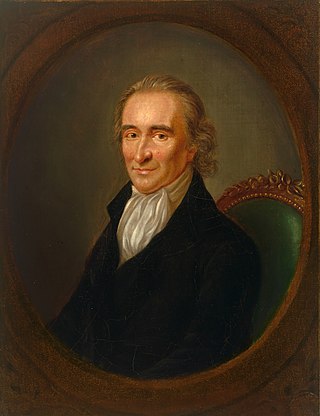 5
Thomas Paine was an English-born American Founding Father, French Revolutionary, political activist, philosopher, political theorist, and revolutionary. He authored Common Sense (1776) and The...
5
Thomas Paine was an English-born American Founding Father, French Revolutionary, political activist, philosopher, political theorist, and revolutionary. He authored Common Sense (1776) and The...
Rudolf Diesel
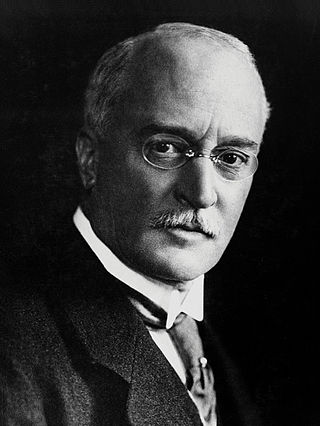 5
Rudolf Christian Karl Diesel was a German inventor and mechanical engineer who is famous for having invented the Diesel engine, which burns Diesel fuel; both are named after him.
5
Rudolf Christian Karl Diesel was a German inventor and mechanical engineer who is famous for having invented the Diesel engine, which burns Diesel fuel; both are named after him.
John Bardeen
 5
John Bardeen was an American physicist and electrical engineer. He is the only person to be awarded the Nobel Prize in Physics twice: first in 1956 with William Shockley and Walter Brattain for the...
5
John Bardeen was an American physicist and electrical engineer. He is the only person to be awarded the Nobel Prize in Physics twice: first in 1956 with William Shockley and Walter Brattain for the...
Thomas Nelson Jr.
 5
Thomas Nelson Jr. was a Founding Father of the United States, general in the Revolutionary War, member of the Continental Congress, and a Virginia planter. In addition to serving many terms in the...
5
Thomas Nelson Jr. was a Founding Father of the United States, general in the Revolutionary War, member of the Continental Congress, and a Virginia planter. In addition to serving many terms in the...
Queen Victoria
 5
Victoria was Queen of the United Kingdom of Great Britain and Ireland from 20 June 1837 until her death in 1901. Her reign of 63 years and 216 days—which was longer than those of any of her...
5
Victoria was Queen of the United Kingdom of Great Britain and Ireland from 20 June 1837 until her death in 1901. Her reign of 63 years and 216 days—which was longer than those of any of her...
Felix Mendelssohn
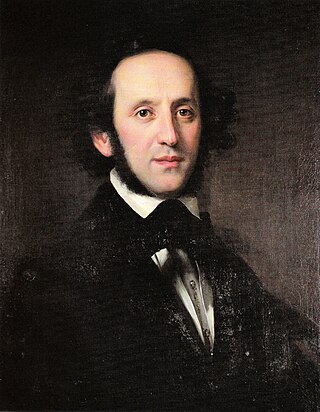 5
Jakob Ludwig Felix Mendelssohn Bartholdy, widely known as Felix Mendelssohn, was a German composer, pianist, organist and conductor of the early Romantic period. Mendelssohn's compositions include...
5
Jakob Ludwig Felix Mendelssohn Bartholdy, widely known as Felix Mendelssohn, was a German composer, pianist, organist and conductor of the early Romantic period. Mendelssohn's compositions include...
Ferdinand Porsche
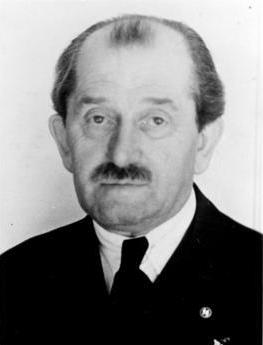 5
Ferdinand Porsche was a German-Bohemian automotive engineer and founder of the Porsche AG. He is best known for creating the first gasoline–electric hybrid vehicle (Lohner–Porsche), the Volkswagen...
5
Ferdinand Porsche was a German-Bohemian automotive engineer and founder of the Porsche AG. He is best known for creating the first gasoline–electric hybrid vehicle (Lohner–Porsche), the Volkswagen...
Gregor Mendel
 5
Gregor Johann Mendel OSA was an Austrian-Czech biologist, meteorologist, mathematician, Augustinian friar and abbot of St. Thomas' Abbey in Brno (Brünn), Margraviate of Moravia. Mendel was born in a...
5
Gregor Johann Mendel OSA was an Austrian-Czech biologist, meteorologist, mathematician, Augustinian friar and abbot of St. Thomas' Abbey in Brno (Brünn), Margraviate of Moravia. Mendel was born in a...
Leo Tolstoy
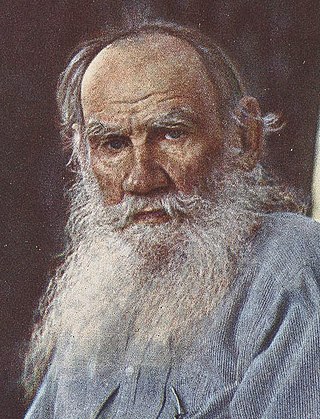 5
Count Lev Nikolayevich Tolstoy, usually referred to in English as Leo Tolstoy, was a Russian writer. He is regarded as one of the greatest and most influential authors of all time. He received...
5
Count Lev Nikolayevich Tolstoy, usually referred to in English as Leo Tolstoy, was a Russian writer. He is regarded as one of the greatest and most influential authors of all time. He received...
Albert Einstein
 5
Albert Einstein was a German-born theoretical physicist who is widely held to be one of the greatest and most influential scientists of all time. Best known for developing the theory of relativity,...
5
Albert Einstein was a German-born theoretical physicist who is widely held to be one of the greatest and most influential scientists of all time. Best known for developing the theory of relativity,...
Linus Pauling
 4
Linus Carl Pauling was an American chemist, biochemist, chemical engineer, peace activist, author, and educator. He published more than 1,200 papers and books, of which about 850 dealt with...
4
Linus Carl Pauling was an American chemist, biochemist, chemical engineer, peace activist, author, and educator. He published more than 1,200 papers and books, of which about 850 dealt with...
Fridtjof Nansen
 4
Fridtjof Wedel-Jarlsberg Nansen was a Norwegian polymath and Nobel Peace Prize laureate. He gained prominence at various points in his life as an explorer, scientist, diplomat, humanitarian and...
4
Fridtjof Wedel-Jarlsberg Nansen was a Norwegian polymath and Nobel Peace Prize laureate. He gained prominence at various points in his life as an explorer, scientist, diplomat, humanitarian and...
Antonio Vivaldi
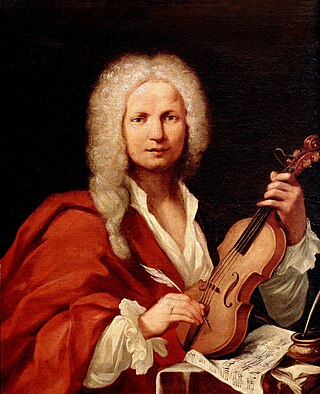 4
Antonio Lucio Vivaldi was an Italian composer, virtuoso violinist and impresario of Baroque music. Along with Johann Sebastian Bach and George Frideric Handel, Vivaldi ranks amongst the greatest...
4
Antonio Lucio Vivaldi was an Italian composer, virtuoso violinist and impresario of Baroque music. Along with Johann Sebastian Bach and George Frideric Handel, Vivaldi ranks amongst the greatest...
Franz Liszt
 4
Franz Liszt was a Hungarian composer, virtuoso pianist, conductor and teacher of the Romantic period. With a diverse body of work spanning more than six decades, he is considered to be one of the...
4
Franz Liszt was a Hungarian composer, virtuoso pianist, conductor and teacher of the Romantic period. With a diverse body of work spanning more than six decades, he is considered to be one of the...
David Attenborough
 4
Sir David Frederick Attenborough is a British broadcaster, biologist, natural historian, and writer. He is best known for writing and presenting, in conjunction with the BBC Natural History Unit, the...
4
Sir David Frederick Attenborough is a British broadcaster, biologist, natural historian, and writer. He is best known for writing and presenting, in conjunction with the BBC Natural History Unit, the...
Nicolaus Copernicus
 4
Nicolaus Copernicus was a Renaissance polymath, active as a mathematician, astronomer, and Catholic canon, who formulated a model of the universe that placed the Sun rather than Earth at its center....
4
Nicolaus Copernicus was a Renaissance polymath, active as a mathematician, astronomer, and Catholic canon, who formulated a model of the universe that placed the Sun rather than Earth at its center....
Albert Schweitzer
 4
Ludwig Philipp Albert Schweitzer was an Alsatian polymath. He was a theologian, organist, musicologist, writer, humanitarian, philosopher, and physician. A Lutheran minister, Schweitzer challenged...
4
Ludwig Philipp Albert Schweitzer was an Alsatian polymath. He was a theologian, organist, musicologist, writer, humanitarian, philosopher, and physician. A Lutheran minister, Schweitzer challenged...
Heinrich Hertz
 4
Heinrich Rudolf Hertz was a German physicist who first conclusively proved the existence of the electromagnetic waves predicted by James Clerk Maxwell's equations of electromagnetism. The unit of...
4
Heinrich Rudolf Hertz was a German physicist who first conclusively proved the existence of the electromagnetic waves predicted by James Clerk Maxwell's equations of electromagnetism. The unit of...
Augustine Herman
 4
Augustine Herman, First Lord of Bohemia Manor was a Bohemian explorer, merchant and cartographer who lived in New Amsterdam and Cecil County, Maryland. In the employment of Cecil Calvert, 2nd Baron...
4
Augustine Herman, First Lord of Bohemia Manor was a Bohemian explorer, merchant and cartographer who lived in New Amsterdam and Cecil County, Maryland. In the employment of Cecil Calvert, 2nd Baron...
André-Marie Ampère
 3
André-Marie Ampère was a French physicist and mathematician who was one of the founders of the science of classical electromagnetism, which he referred to as "electrodynamics". He is also the...
3
André-Marie Ampère was a French physicist and mathematician who was one of the founders of the science of classical electromagnetism, which he referred to as "electrodynamics". He is also the...
Hubertus
 3
Hubertus or Hubert was a Christian saint who became the first bishop of Liège in 708 A.D. He is the patron saint of hunters, mathematicians, opticians and metalworkers. Known as the "Apostle of the...
3
Hubertus or Hubert was a Christian saint who became the first bishop of Liège in 708 A.D. He is the patron saint of hunters, mathematicians, opticians and metalworkers. Known as the "Apostle of the...
Robert Andrews Millikan
 3
Robert Andrews Millikan was an American experimental physicist who won the Nobel Prize for Physics in 1923 for the measurement of the elementary electric charge and for his work on the photoelectric...
3
Robert Andrews Millikan was an American experimental physicist who won the Nobel Prize for Physics in 1923 for the measurement of the elementary electric charge and for his work on the photoelectric...
Robert Baden-Powell, 1st Baron Baden-Powell
 3
Lieutenant-General Robert Stephenson Smyth Baden-Powell, 1st Baron Baden-Powell, was a British Army officer, writer, founder and first Chief Scout of the world-wide Scout Movement, and founder, with...
3
Lieutenant-General Robert Stephenson Smyth Baden-Powell, 1st Baron Baden-Powell, was a British Army officer, writer, founder and first Chief Scout of the world-wide Scout Movement, and founder, with...
Babe Ruth
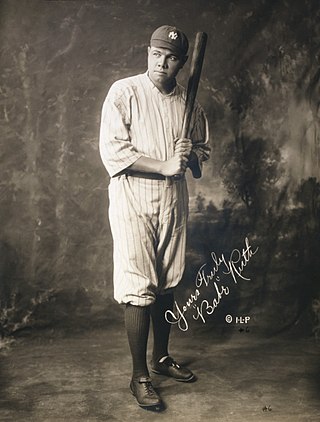 3
George Herman "Babe" Ruth was an American professional baseball player whose career in Major League Baseball (MLB) spanned 22 seasons, from 1914 through 1935. Nicknamed "the Bambino" and "the Sultan...
3
George Herman "Babe" Ruth was an American professional baseball player whose career in Major League Baseball (MLB) spanned 22 seasons, from 1914 through 1935. Nicknamed "the Bambino" and "the Sultan...
Byron Nelson
 3
John Byron Nelson Jr. was an American professional golfer between 1935 and 1946, widely considered one of the greatest golfers of all time.
3
John Byron Nelson Jr. was an American professional golfer between 1935 and 1946, widely considered one of the greatest golfers of all time.
Josip Broz Tito
 3
Josip Broz, commonly known as Tito, was a Yugoslav communist revolutionary and politician who served in various positions of national leadership from 1943 until his death in 1980. During World War...
3
Josip Broz, commonly known as Tito, was a Yugoslav communist revolutionary and politician who served in various positions of national leadership from 1943 until his death in 1980. During World War...
Roald Amundsen
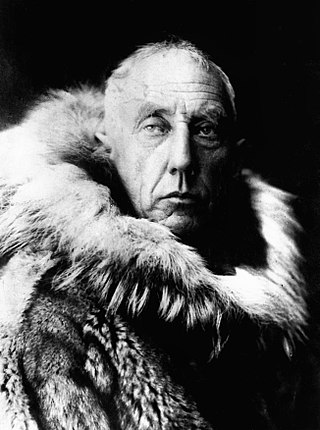 3
Roald Engelbregt Gravning Amundsen was a Norwegian explorer of polar regions. He was a key figure of the period known as the Heroic Age of Antarctic Exploration.
3
Roald Engelbregt Gravning Amundsen was a Norwegian explorer of polar regions. He was a key figure of the period known as the Heroic Age of Antarctic Exploration.
Albert Camus
 3
Albert Camus was a French philosopher, author, dramatist, journalist, world federalist, and political activist. He was the recipient of the 1957 Nobel Prize in Literature at the age of 44, the...
3
Albert Camus was a French philosopher, author, dramatist, journalist, world federalist, and political activist. He was the recipient of the 1957 Nobel Prize in Literature at the age of 44, the...
Salvador Allende
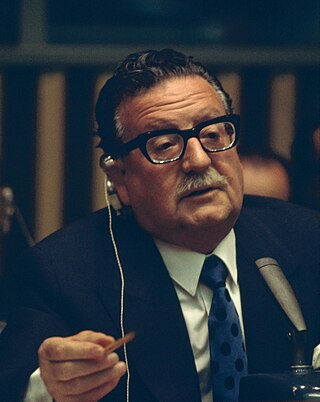 3
Salvador Guillermo Allende Gossens was a Chilean socialist politician who served as the 28th president of Chile from 1970 until his death in 1973. As a democratic socialist committed to democracy, he...
3
Salvador Guillermo Allende Gossens was a Chilean socialist politician who served as the 28th president of Chile from 1970 until his death in 1973. As a democratic socialist committed to democracy, he...
Cleopatra
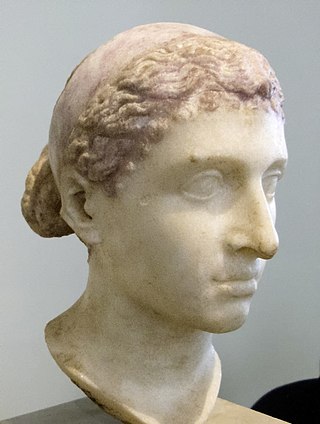 3
Cleopatra VII Thea Philopator was Queen of the Ptolemaic Kingdom of Egypt from 51 to 30 BC, and its last active ruler. A member of the Ptolemaic dynasty, she was a descendant of its founder Ptolemy I...
3
Cleopatra VII Thea Philopator was Queen of the Ptolemaic Kingdom of Egypt from 51 to 30 BC, and its last active ruler. A member of the Ptolemaic dynasty, she was a descendant of its founder Ptolemy I...